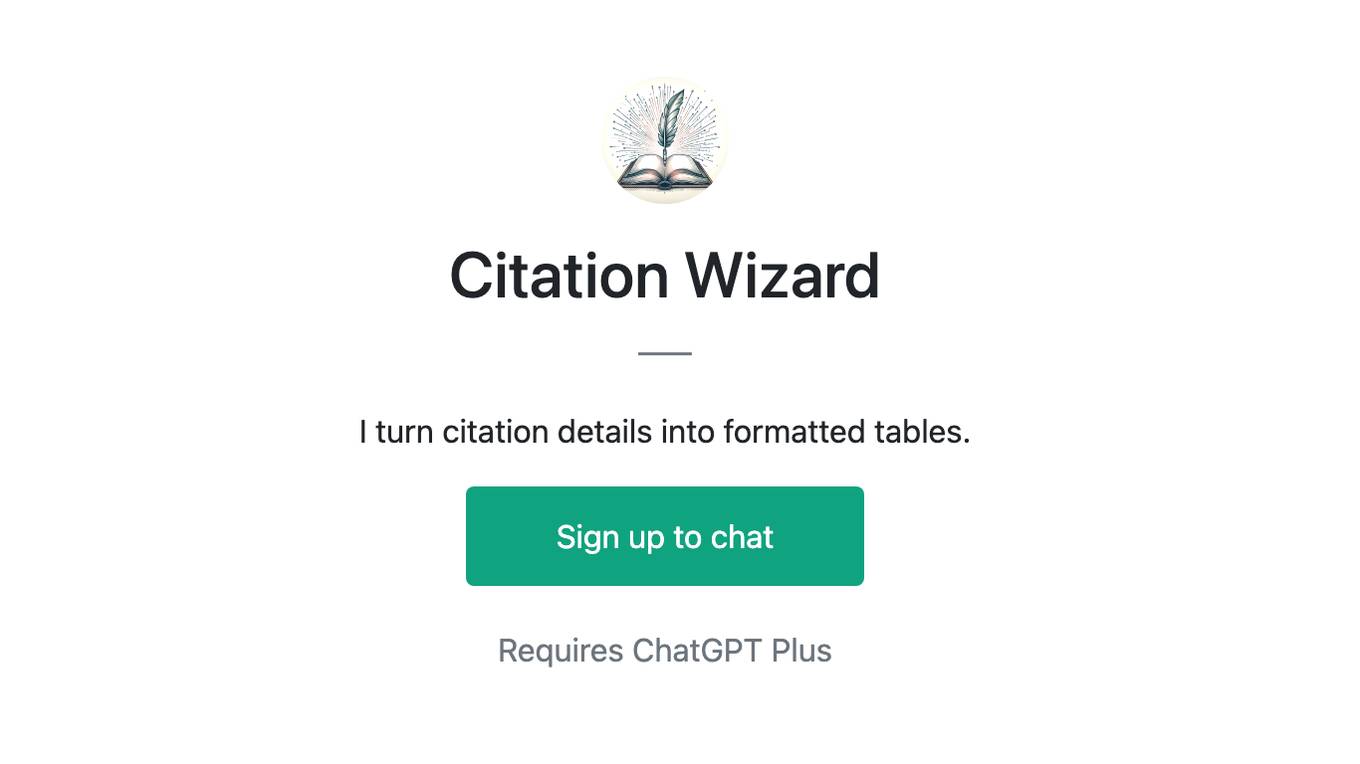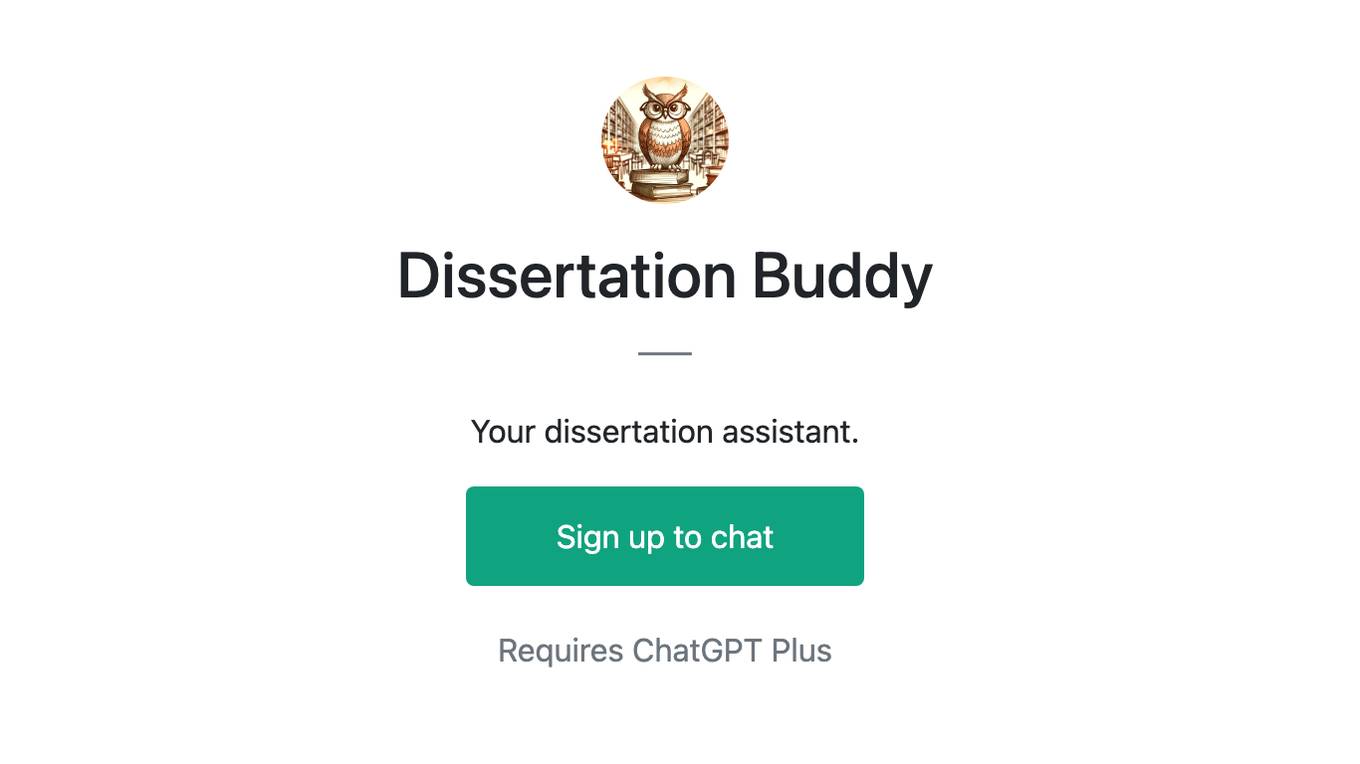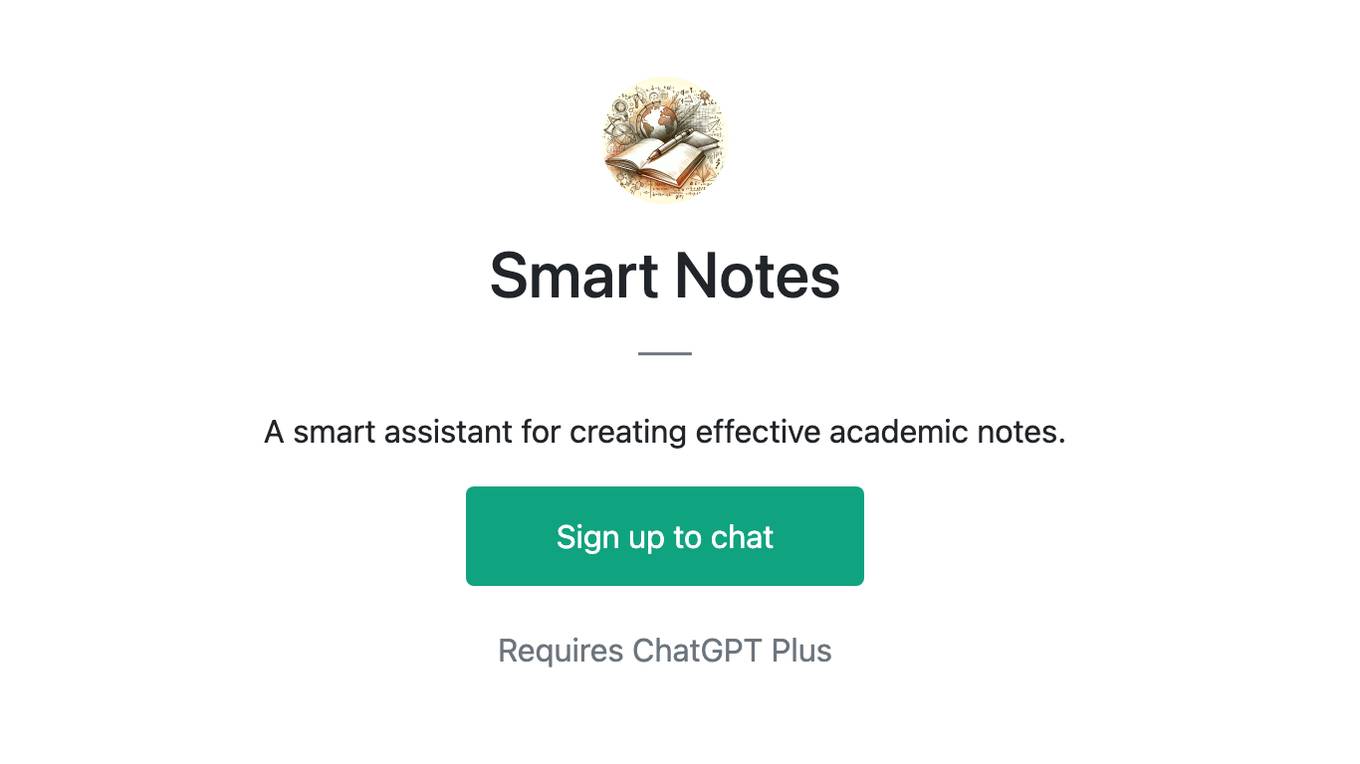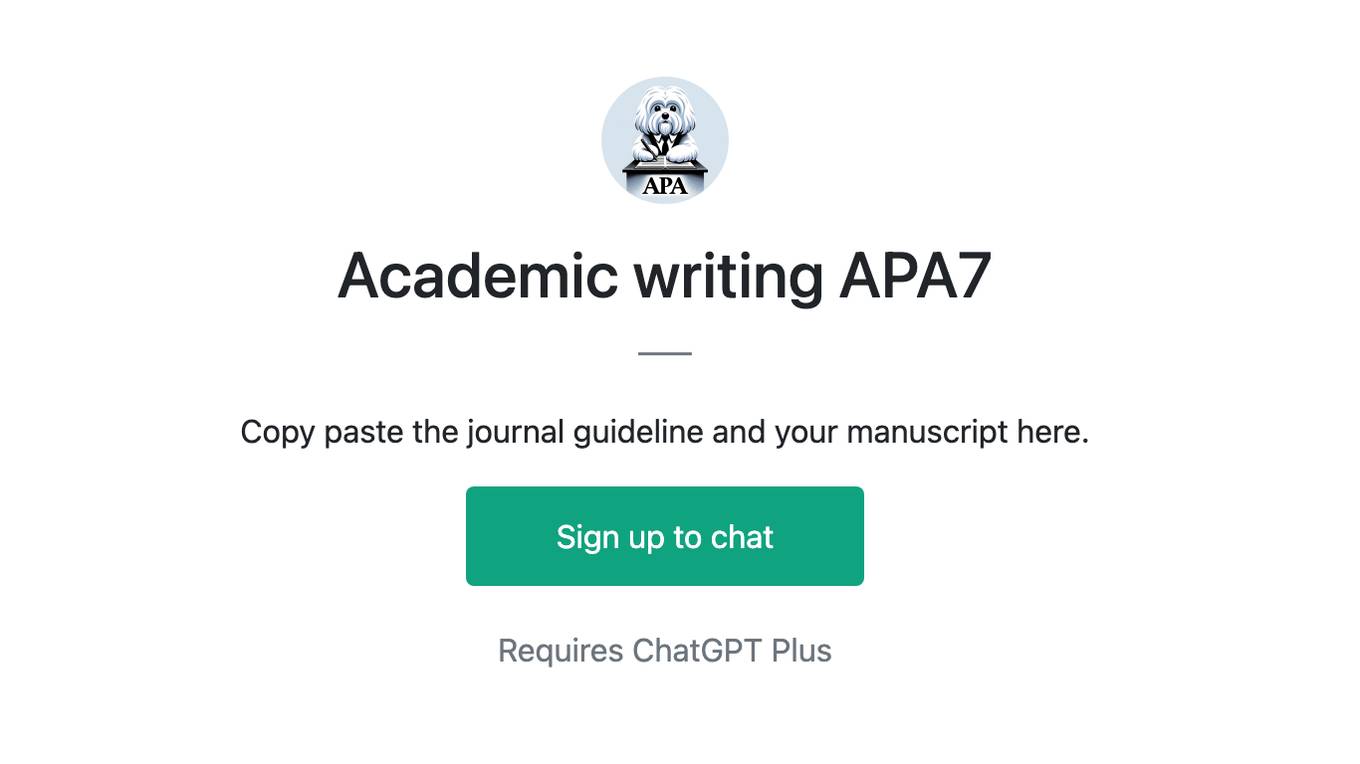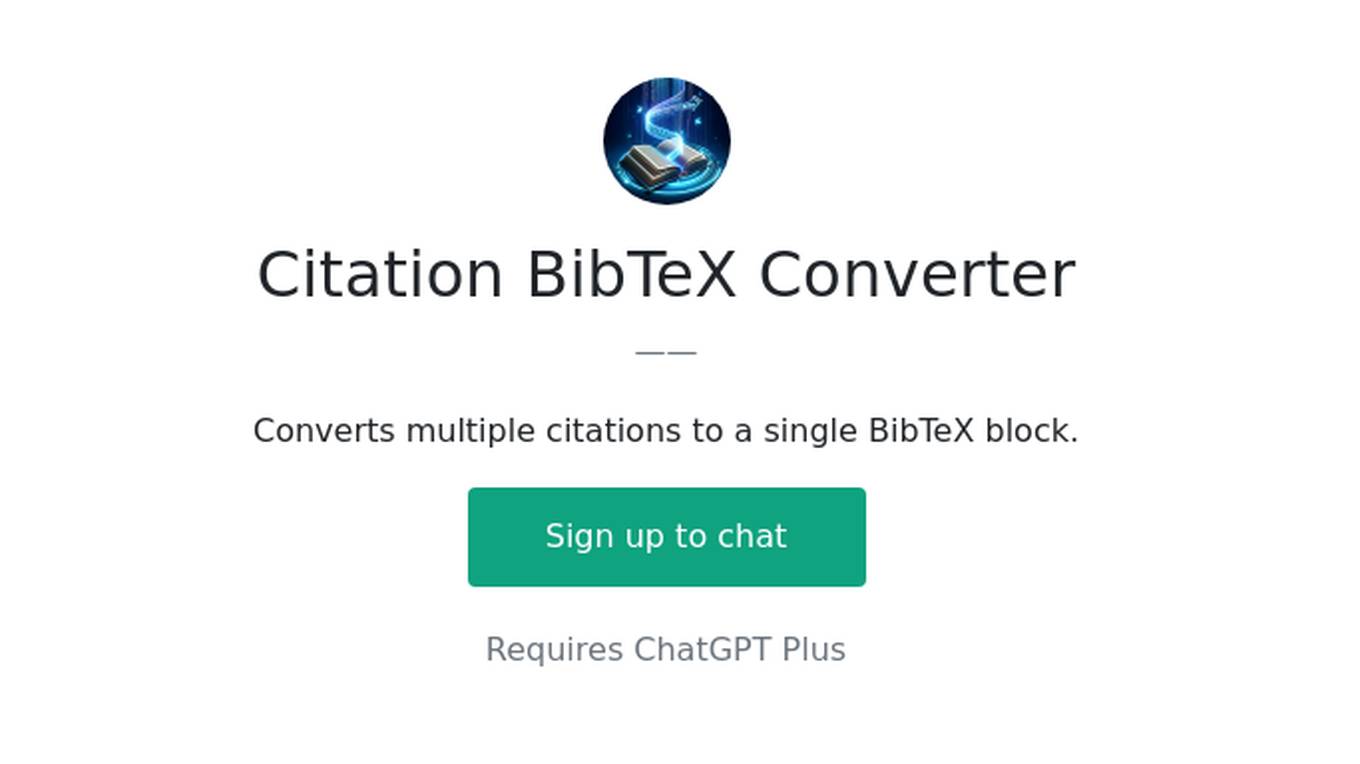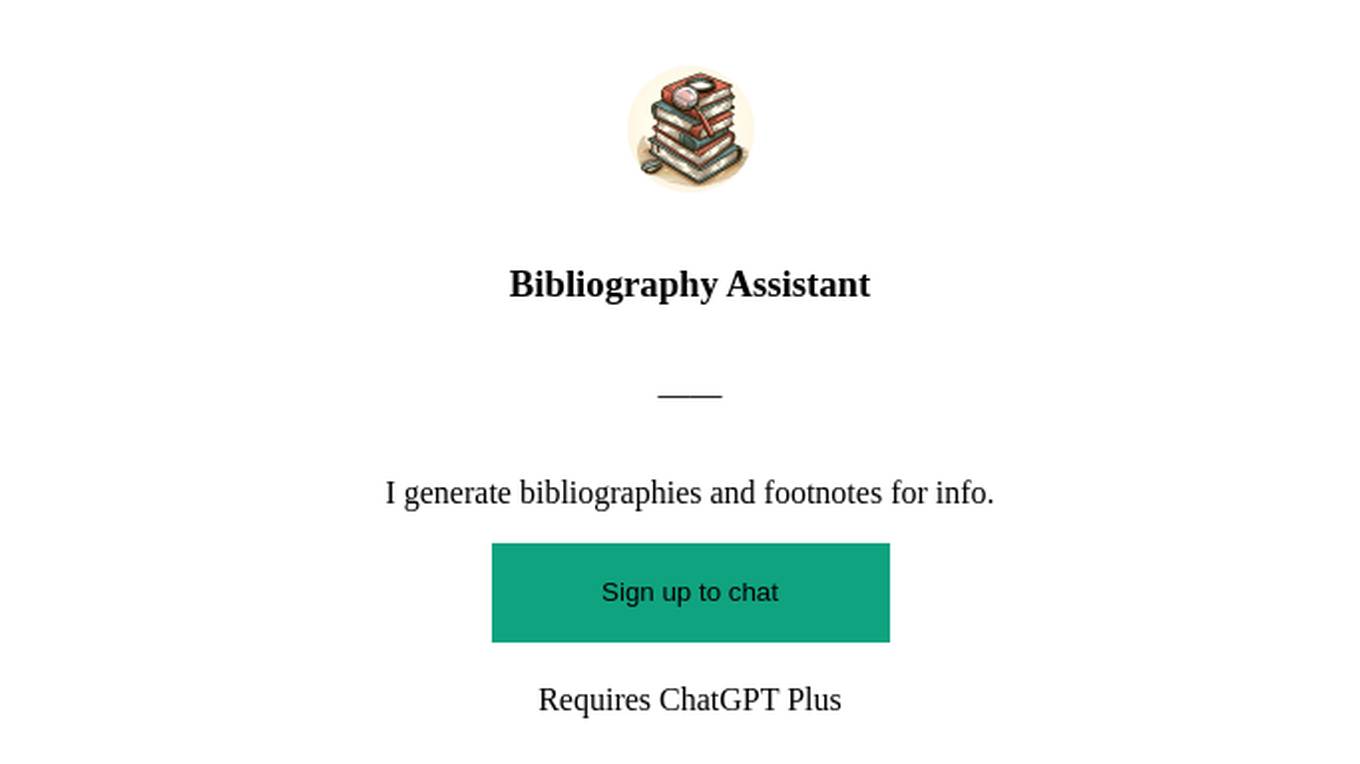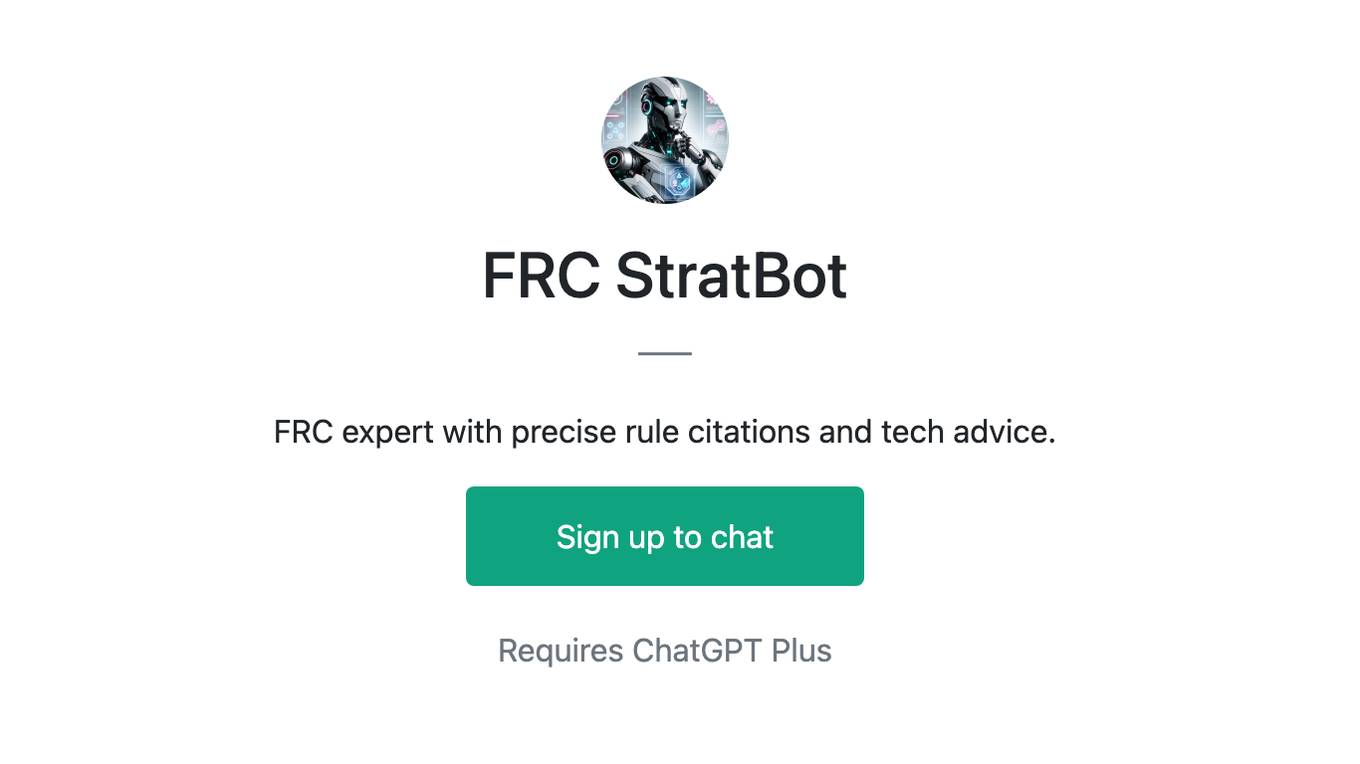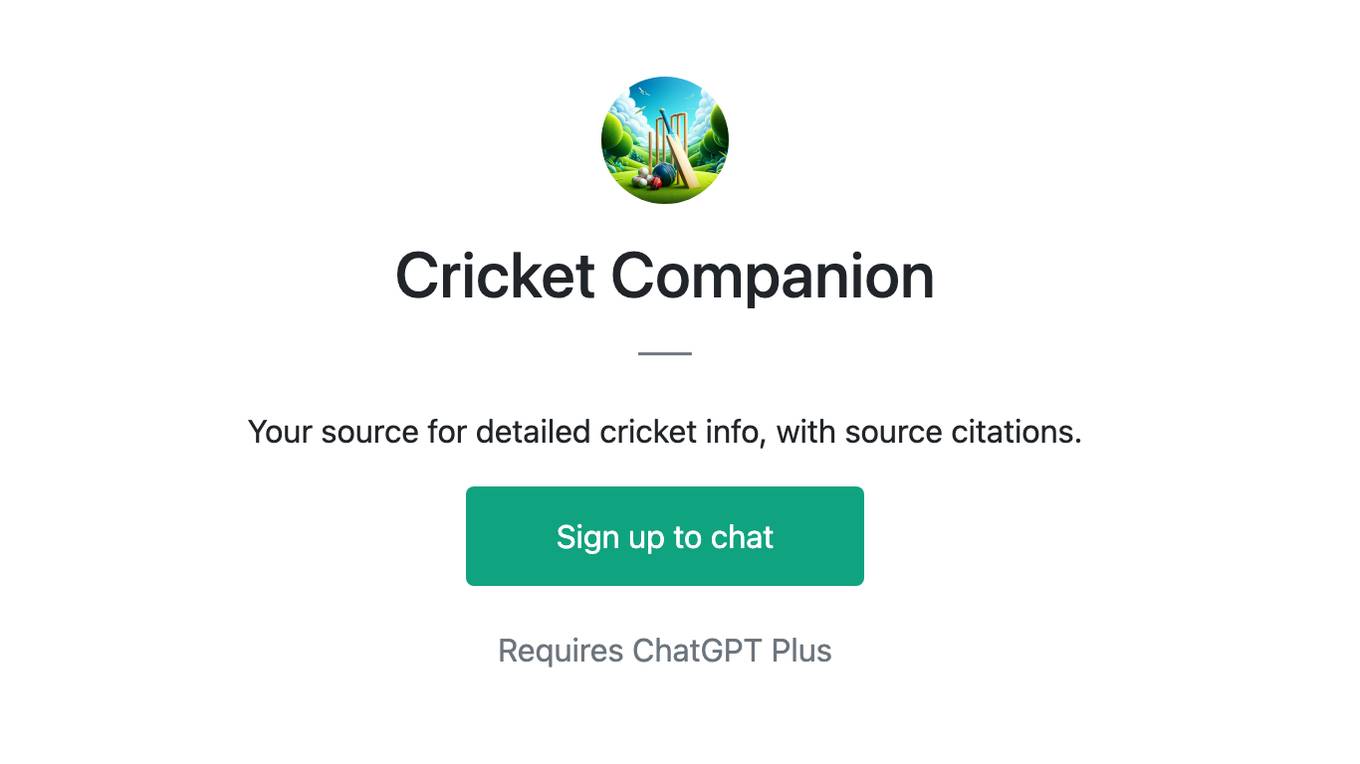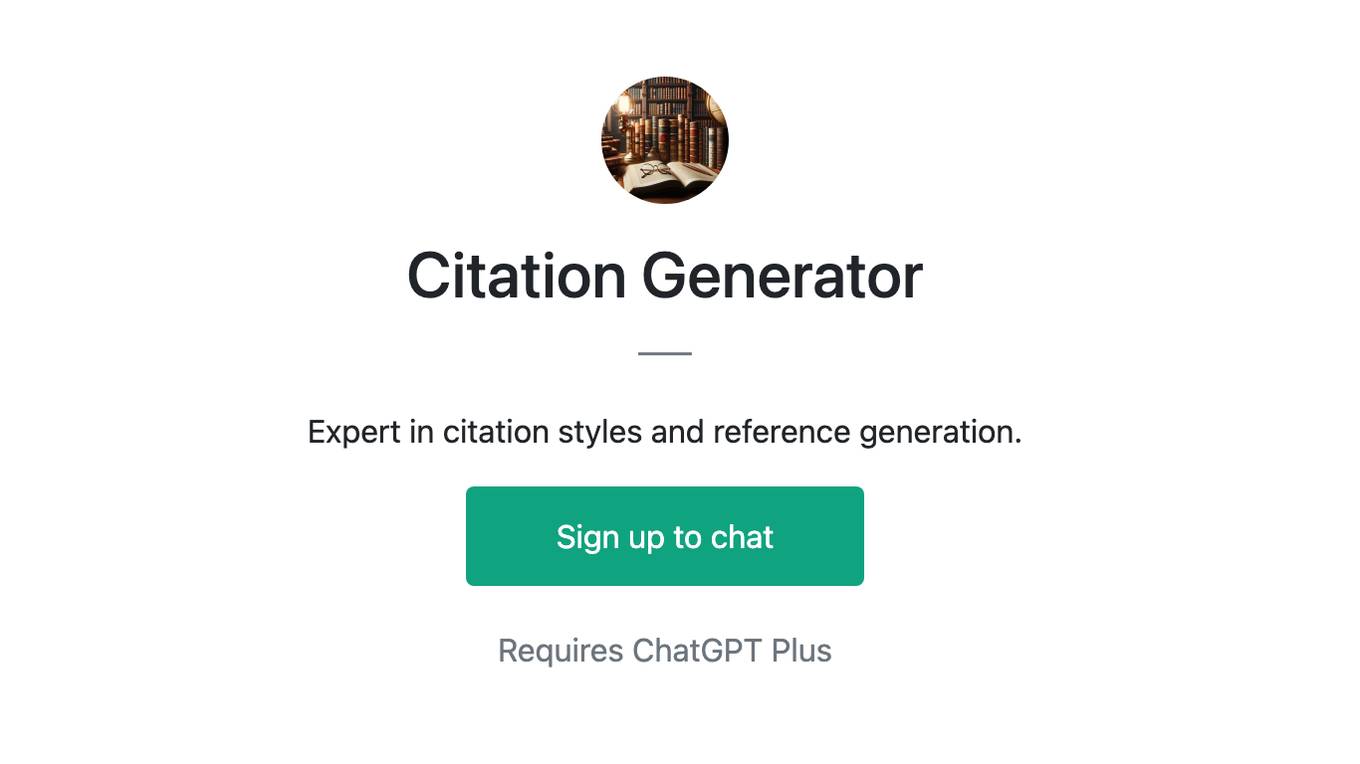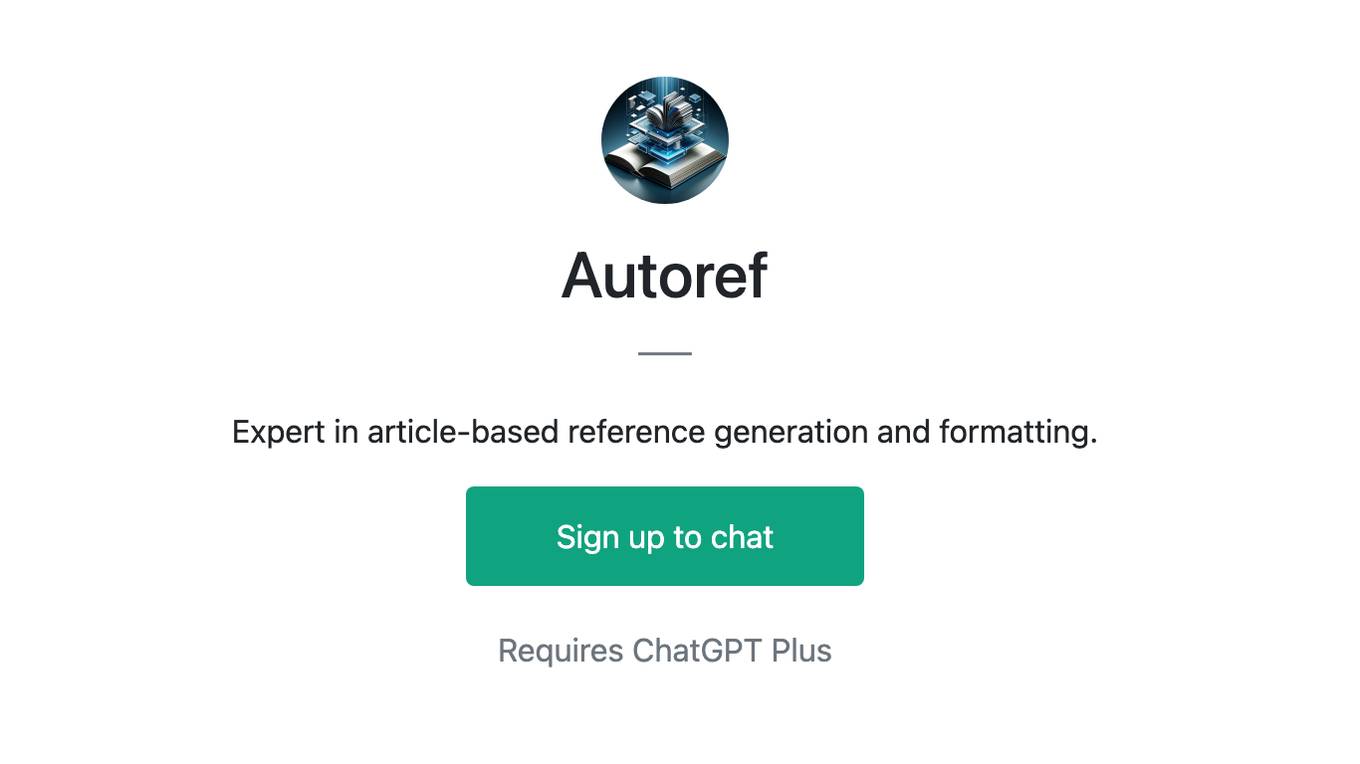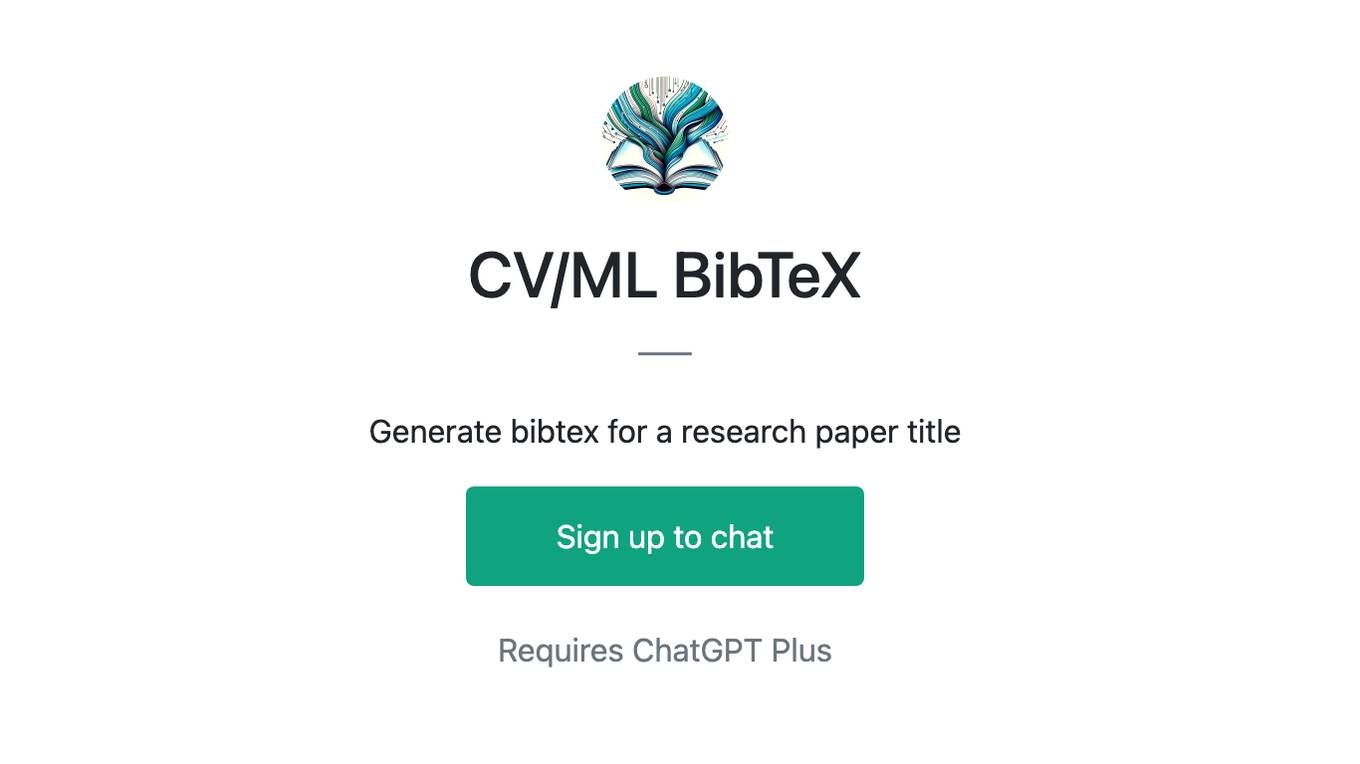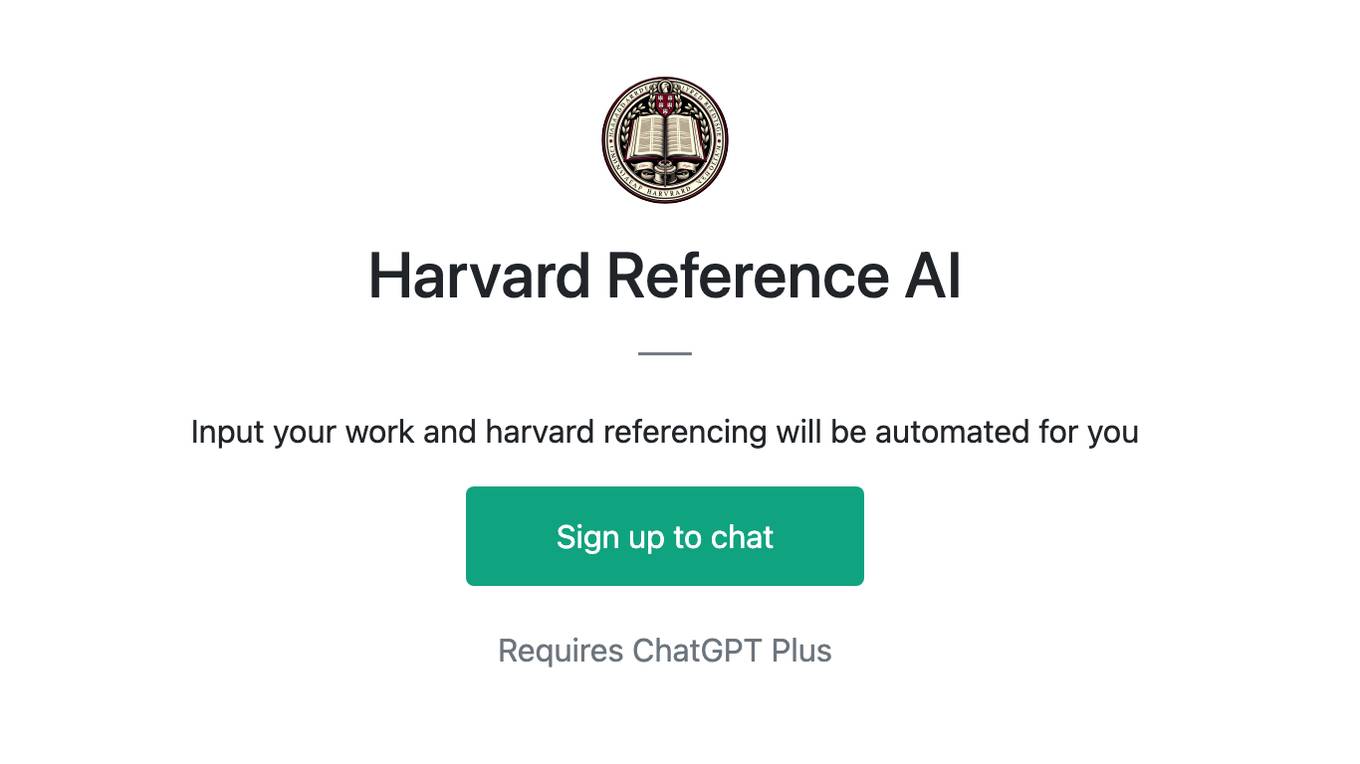Best AI tools for< Generate Citations >
20 - AI tool Sites
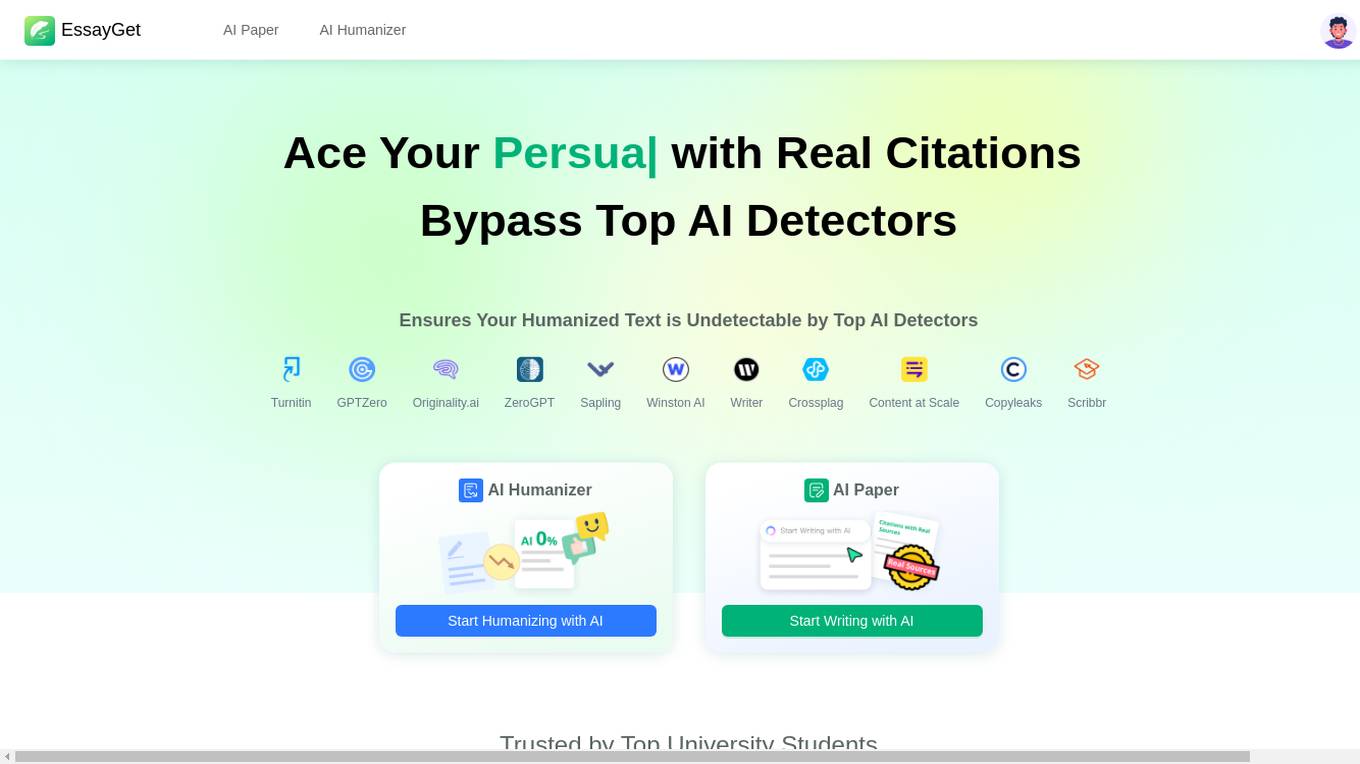
EssayGet
EssayGet is an AI tool designed to assist users in writing academic papers by providing features such as humanizing text, ensuring plagiarism-free content, generating in-text citations, and creating comprehensive outlines. The tool utilizes advanced algorithms to refine and rephrase writing, making it undetectable by top AI detectors like Turnitin, GPTZero, and Originality.ai. EssayGet aims to help students maintain the authenticity and originality of their work effortlessly, trusted by top university students for its reliable services.
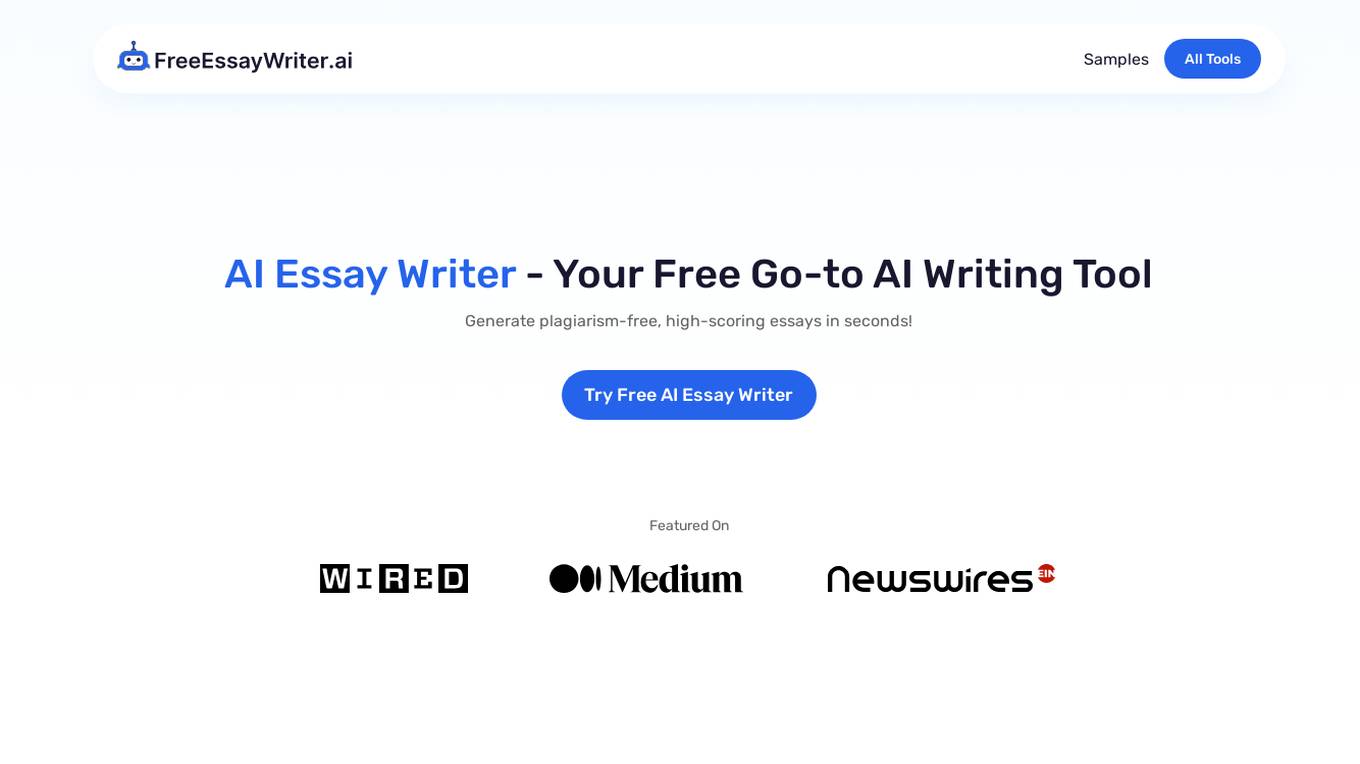
FreeEssayWriter.ai
FreeEssayWriter.ai is an AI essay writing tool that helps users generate plagiarism-free, high-quality essays in seconds. It utilizes advanced natural language processing and machine learning algorithms to create well-researched essays based on user input and access to a vast database of scholarly resources. The tool offers features such as content summarization, essay outlining, and citation generation to streamline the writing process and enhance productivity. FreeEssayWriter.ai is designed to assist students in improving their writing quality, conducting authentic research, overcoming language barriers, and learning new skills through AI-generated essays.

WriterBuddy
WriterBuddy is an advanced AI writing assistant that streamlines academic workflow by helping users research, write, edit, and cite faster and smarter. It offers features such as paraphrasing, text summarization, plagiarism checking, grammar checking, and citation generation. WriterBuddy aims to enhance writing productivity, accuracy, and originality, catering to students, researchers, and professionals across various industries.

Scribbr
Scribbr is an AI-powered academic writing tool that offers a range of services to help students achieve academic success. It provides proofreading and editing services, plagiarism checking, citation generation, AI content detection, and a knowledge base with resources for academic writing. Scribbr aims to support students on their journey to become better academic writers by providing the right tools for success.
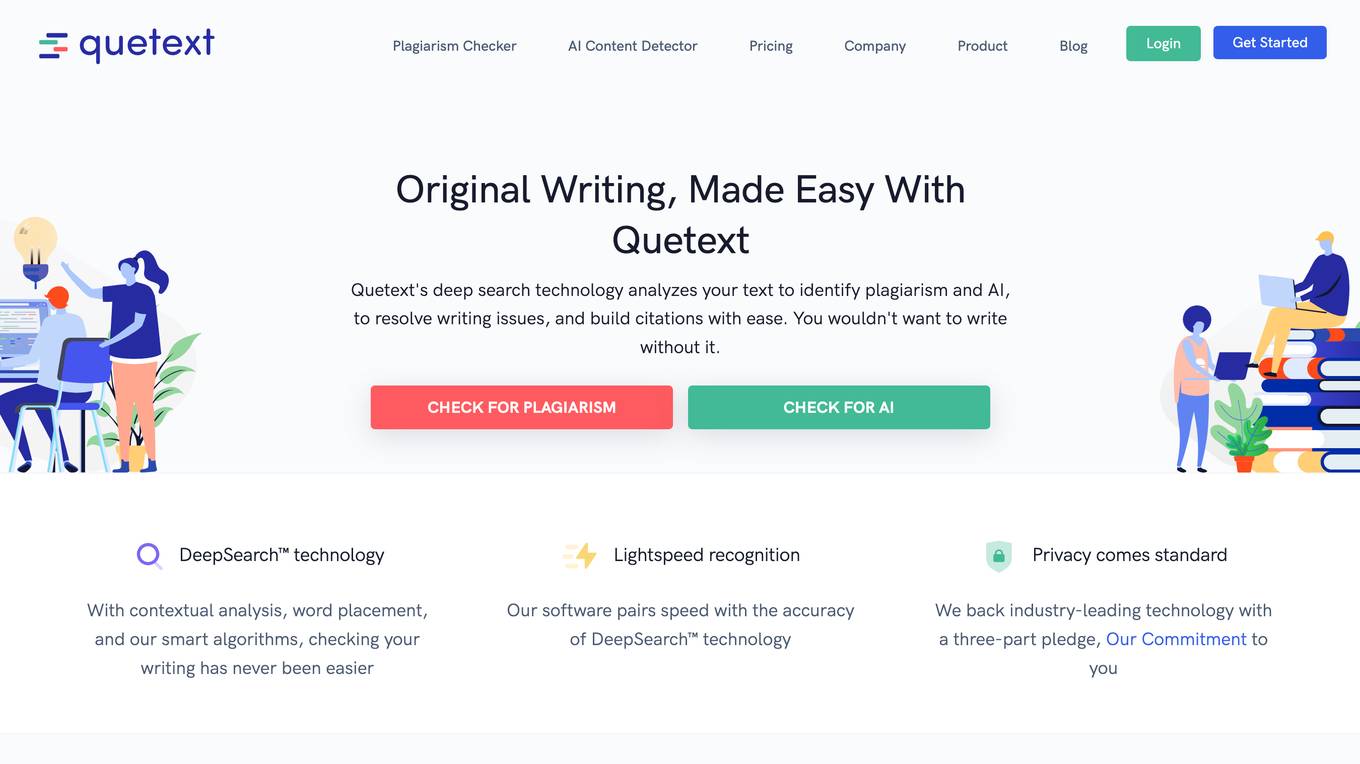
Quetext
Quetext is a plagiarism checker and AI content detector that helps students, teachers, and professionals identify potential plagiarism and AI in their work. With its deep search technology, contextual analysis, and smart algorithms, Quetext makes checking writing easier and more accurate. Quetext also offers a variety of features such as bulk uploads, source exclusion, enhanced citation generator, grammar & spell check, and Deep Search. With its rich and intuitive feedback, Quetext helps users find plagiarism and AI with less stress.
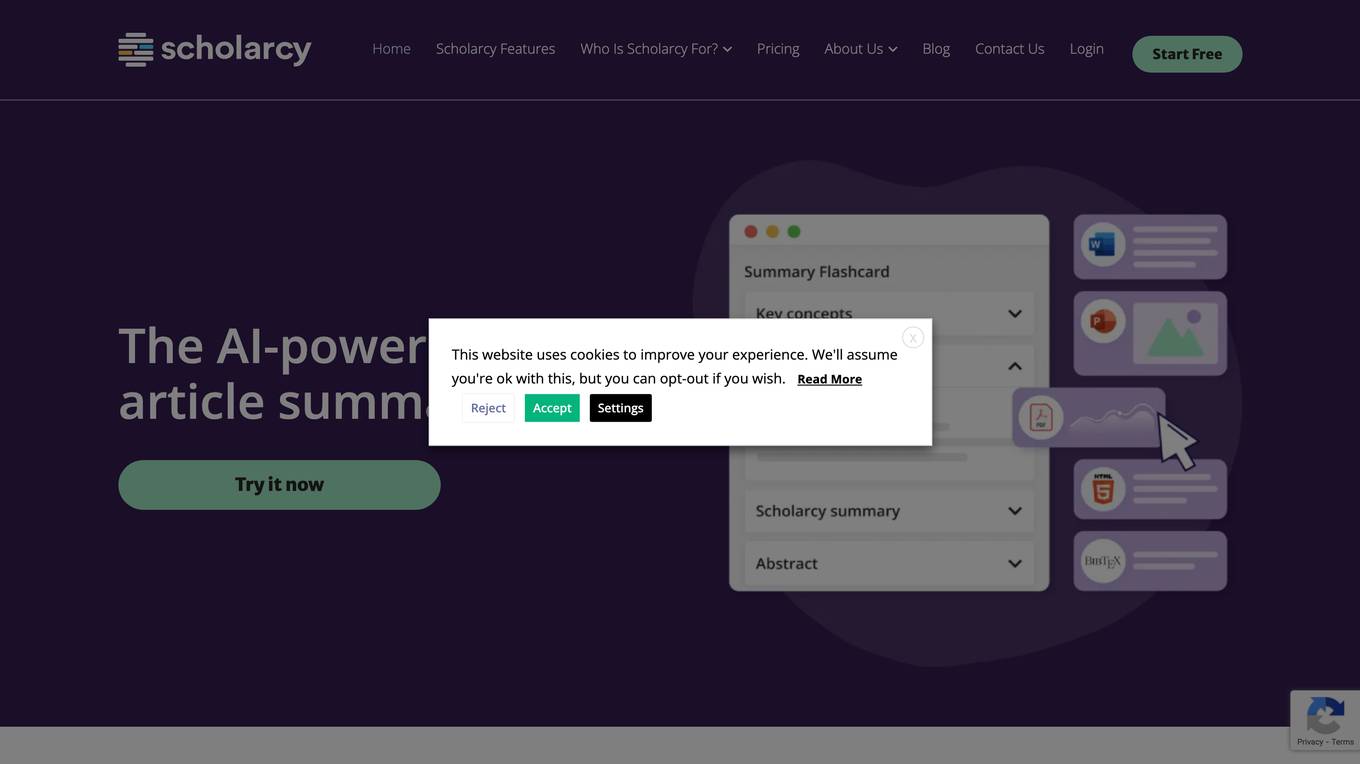
Scholarcy
Scholarcy is an AI-powered tool that helps users to summarize and analyze academic papers efficiently. It uses advanced algorithms to extract key information from research articles, enabling users to save time and improve their understanding of complex topics. Scholarcy is designed to assist students, researchers, and professionals in navigating the vast amount of academic literature available online, making it easier to access and digest valuable information.
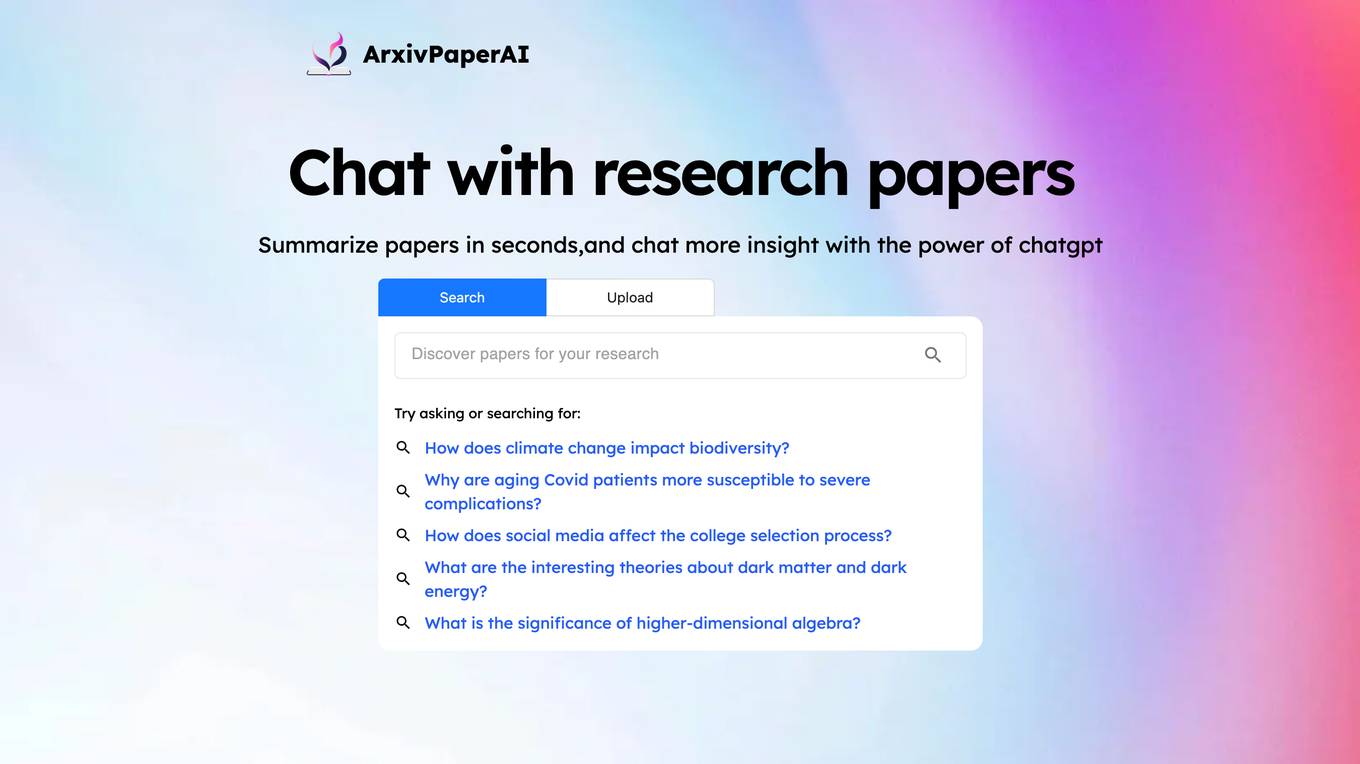
ArxivPaperAI
ArxivPaperAI is an AI-powered research paper summarizer that helps you quickly and easily understand the key points of academic papers. With ArxivPaperAI, you can:
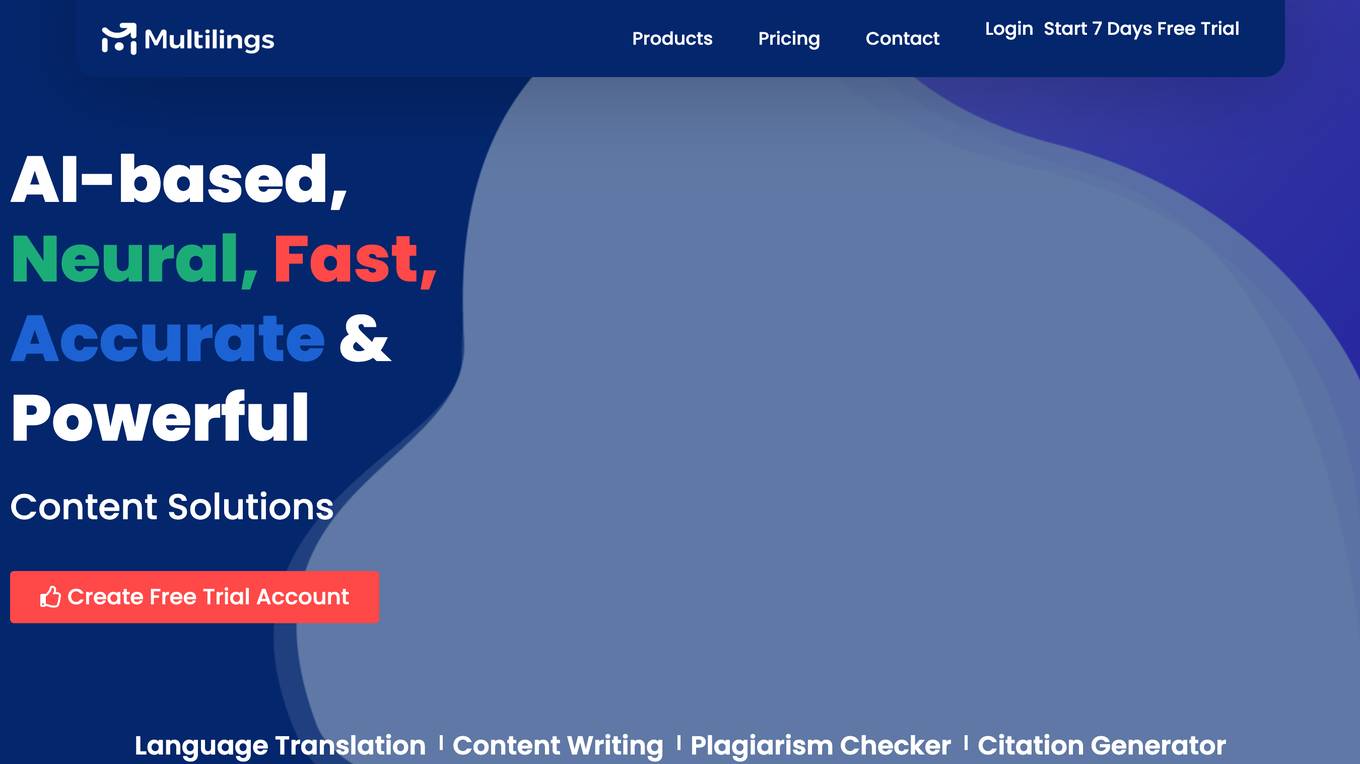
Multilings
Multilings is a neural AI-based machine learning service that provides human-like output for text translation, content writing, plagiarism detection, and voice translation. It is designed for marketers, content writers, researchers, students, and anyone who needs to create high-quality content quickly and efficiently. Multilings offers a range of tools, including a writing assistant, language translator, plagiarism checker, citation generator, and AI chatbot. These tools are powered by advanced machine learning and artificial intelligence algorithms that can generate natural-sounding text, translate languages accurately, detect plagiarism effectively, and provide helpful writing suggestions.
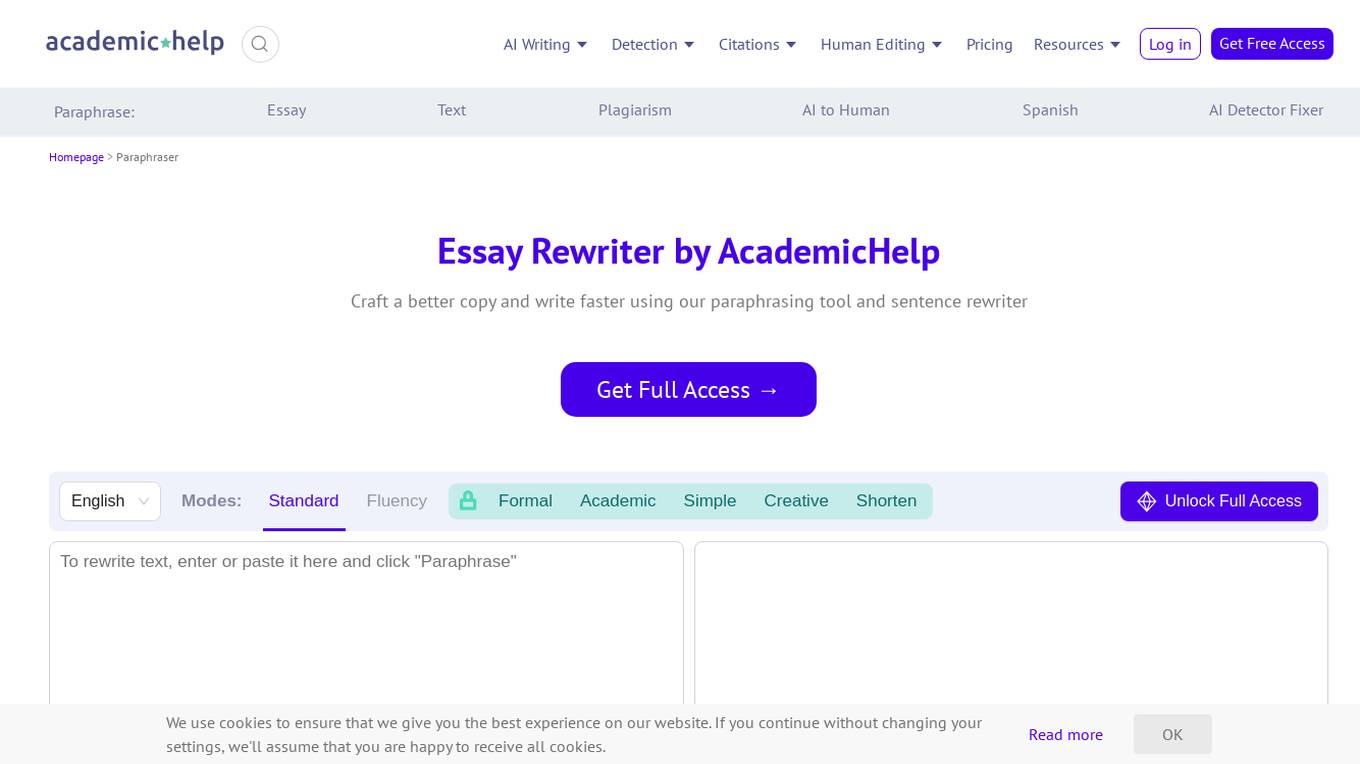
Essay Rewriter
AcademicHelp's Essay Rewriter is a free online paraphrasing tool that uses AI to help you rewrite your essays, articles, and other written content. It offers seven different paraphrasing modes to choose from, so you can customize the output to your specific needs. The tool is easy to use, simply paste your text into the box and click the "Paraphrase" button. The tool will then generate a new version of your text that is free of plagiarism and has a high readability score. You can also use the tool to check for plagiarism, summarize text, and generate citations.

QuillBot
QuillBot is an AI-powered paraphrasing tool that helps students and professionals rewrite, edit, and change the tone of their text to improve clarity and comprehension. It offers various features such as customization, synonym suggestions, and integrations with other writing tools. QuillBot's paraphrasing tool is designed to enhance writing fluency, vocabulary, tone, and style, making it suitable for a wide range of writing tasks.
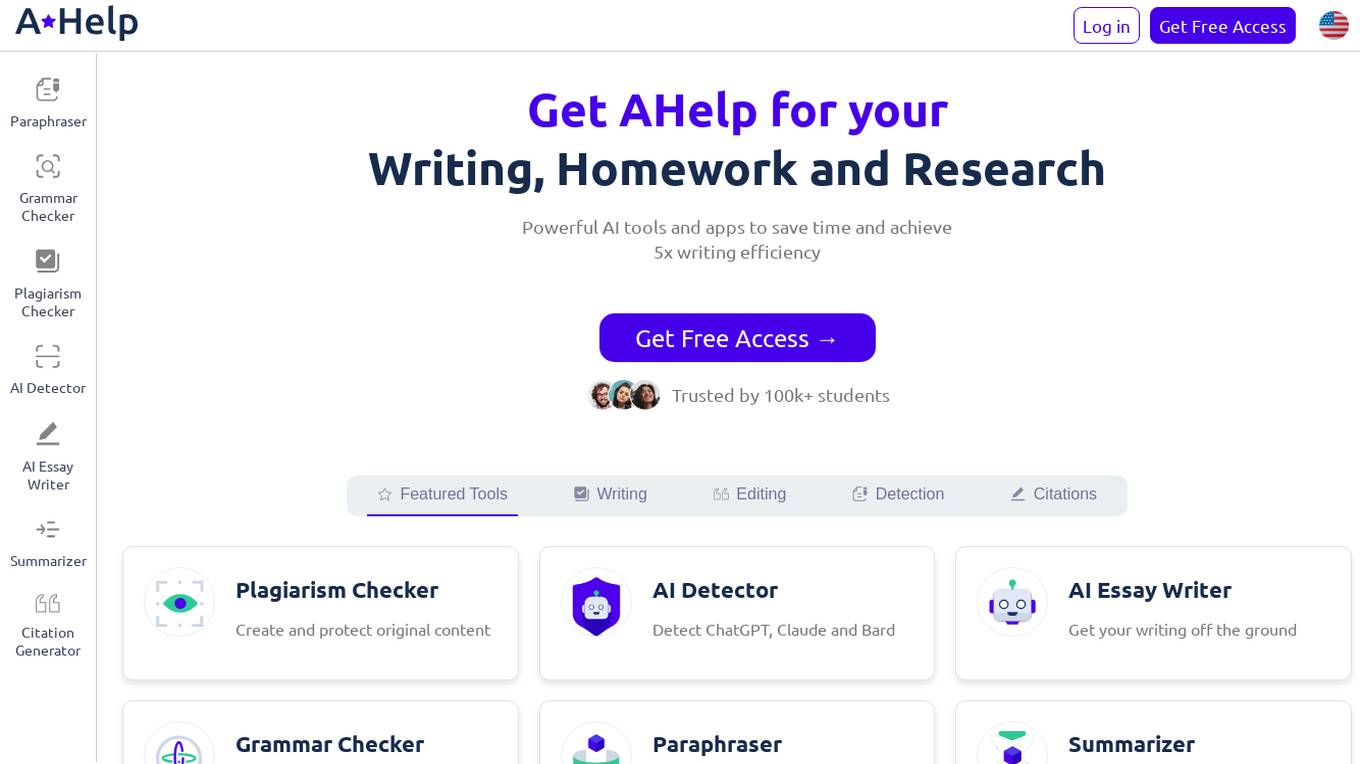
AHelp
AHelp is the ultimate hub of educational and AI writing tools designed to assist students in improving their writing skills, enhancing efficiency, and achieving academic success. The platform offers a variety of powerful AI tools and applications such as Paraphraser, Grammar Checker, Plagiarism Checker, AI Detector, AI Essay Writer, Summarizer, and Citation Generator. AHelp is a one-stop solution for better writing, providing confidentiality, privacy, and a money-back guarantee. With a mission to empower students from top universities, AHelp ensures 100% compliance with academic standards, a significant improvement in writing quality, and a faster writing and research process.
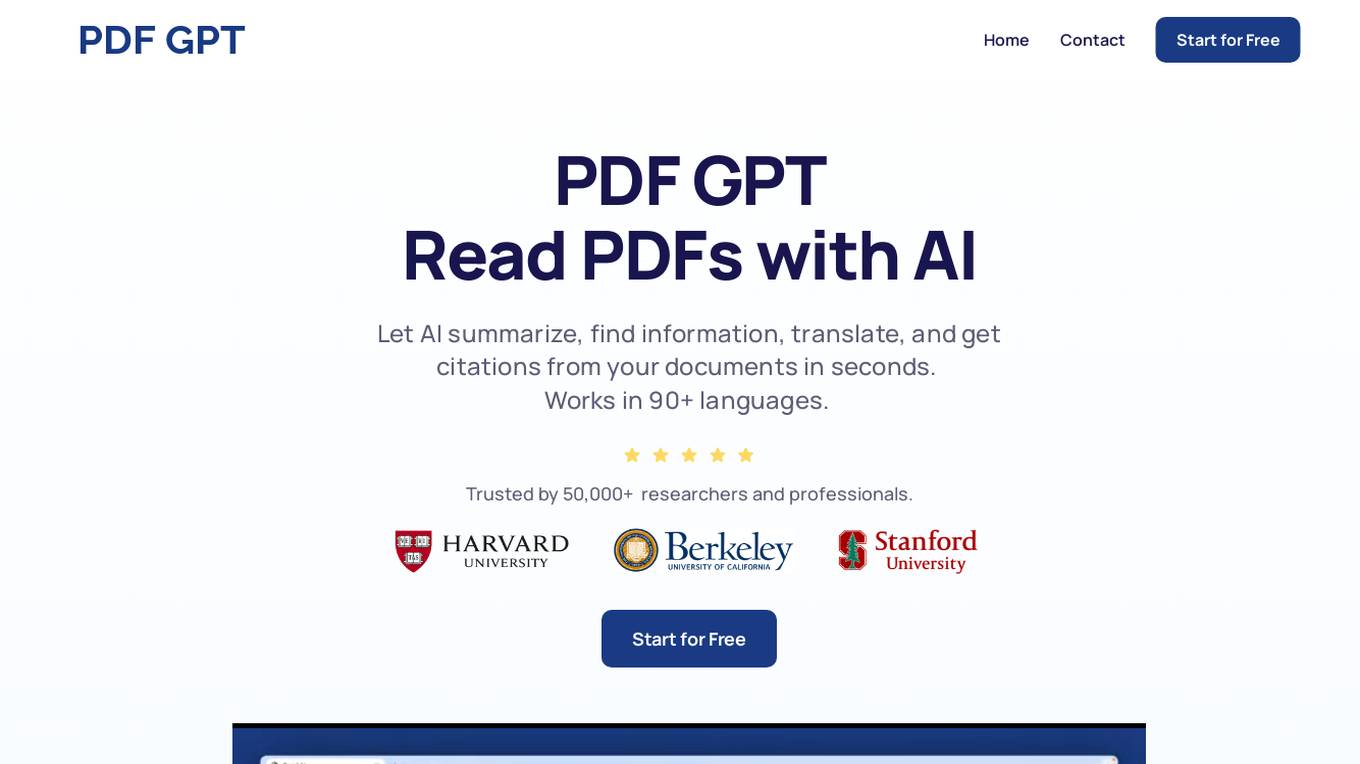
PDF GPT
PDF GPT is an AI-powered tool that allows users to read PDFs with the help of artificial intelligence. It can summarize long documents, find information, translate content, and generate citations from PDF files in various languages. With features like document tagging, group chat functionality, and advanced search capabilities, PDF GPT aims to streamline the document management process for researchers and professionals. The tool is trusted by over 50,000 users and offers both free and premium subscription plans to cater to different user needs.
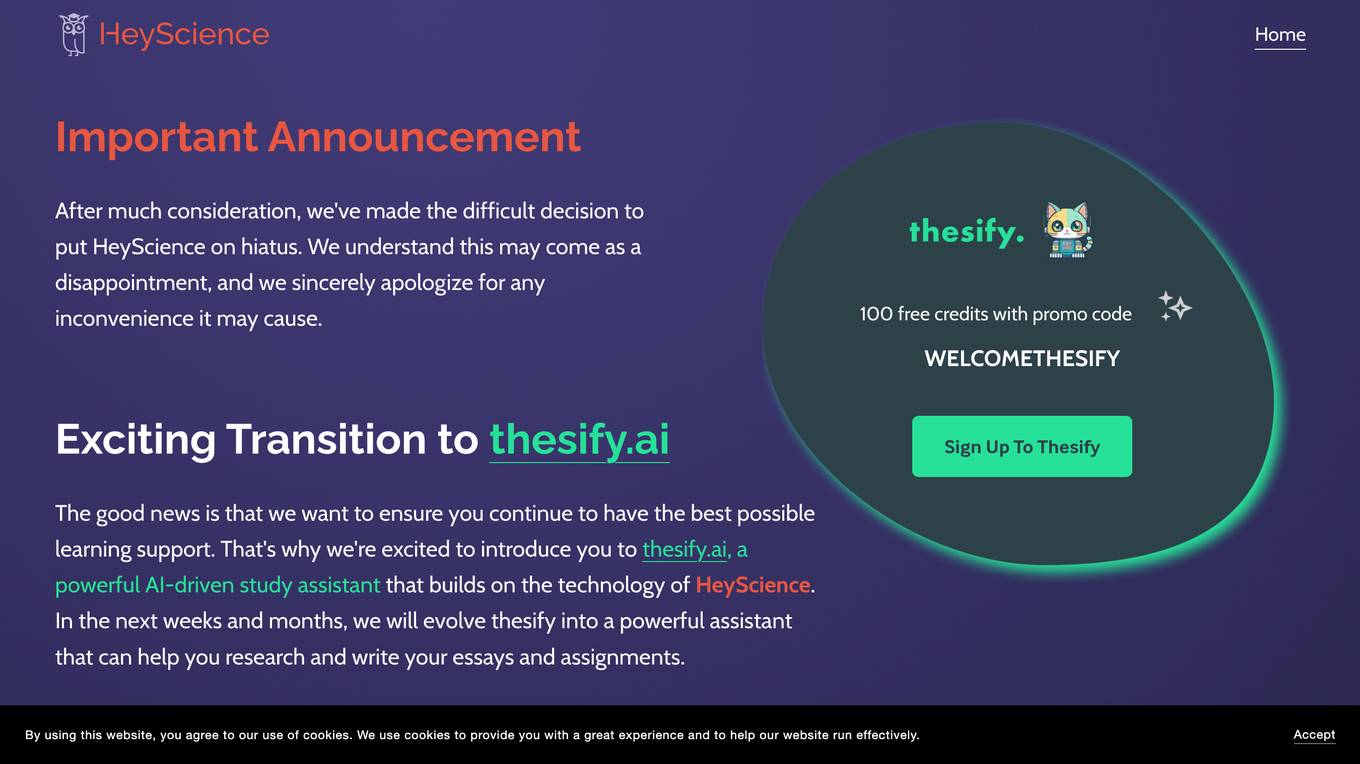
HeyScience
HeyScience is a personal AI assistant that helps users with research and writing tasks. It is powered by thesify.ai, a powerful AI-driven study assistant. HeyScience offers a variety of features, including the ability to generate citations, create outlines, and check for plagiarism. It also provides access to a vast database of academic resources.
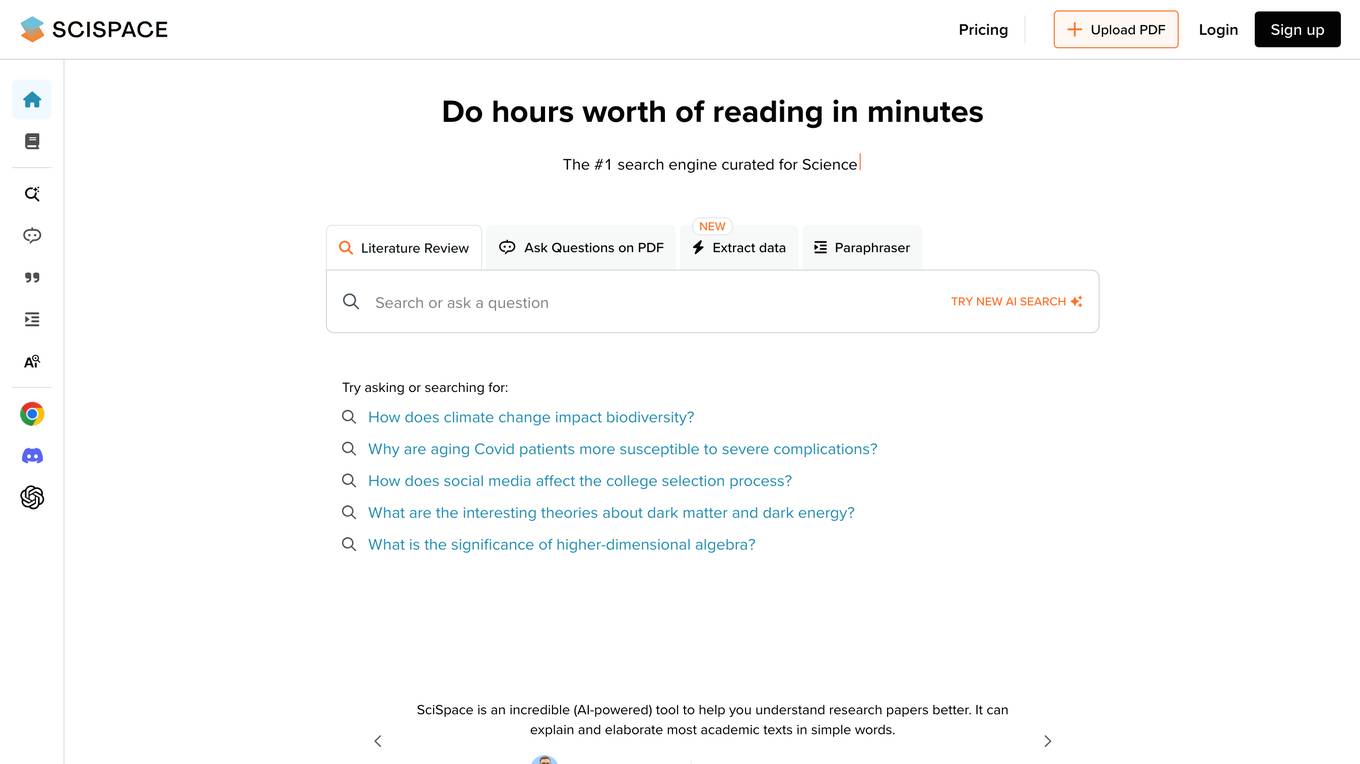
SciSpace
SciSpace is an AI-powered tool that helps researchers understand research papers better. It can explain and elaborate most academic texts in simple words. It is a great tool for students, researchers, and anyone who wants to learn more about a particular topic. SciSpace has a user-friendly interface and is easy to use. Simply upload a research paper or enter a URL, and SciSpace will do the rest. It will highlight key concepts, provide definitions, and generate a summary of the paper. SciSpace can also be used to generate citations and find related papers.
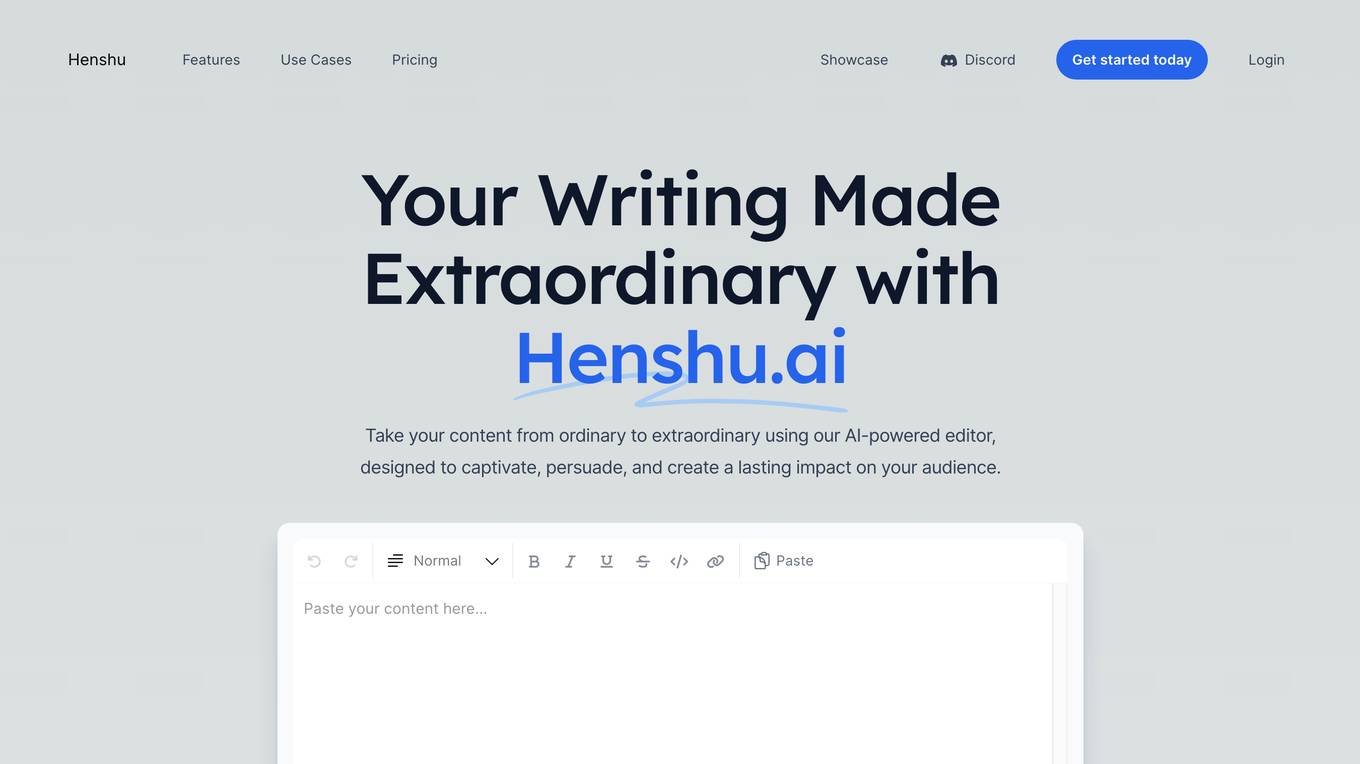
Henshu
Henshu is an AI-powered writing assistant that helps users improve their writing style, grammar, and tone. It offers a variety of features, including the ability to check for plagiarism, generate citations, and translate text into different languages. Henshu is designed to help users create clear, concise, and engaging content.
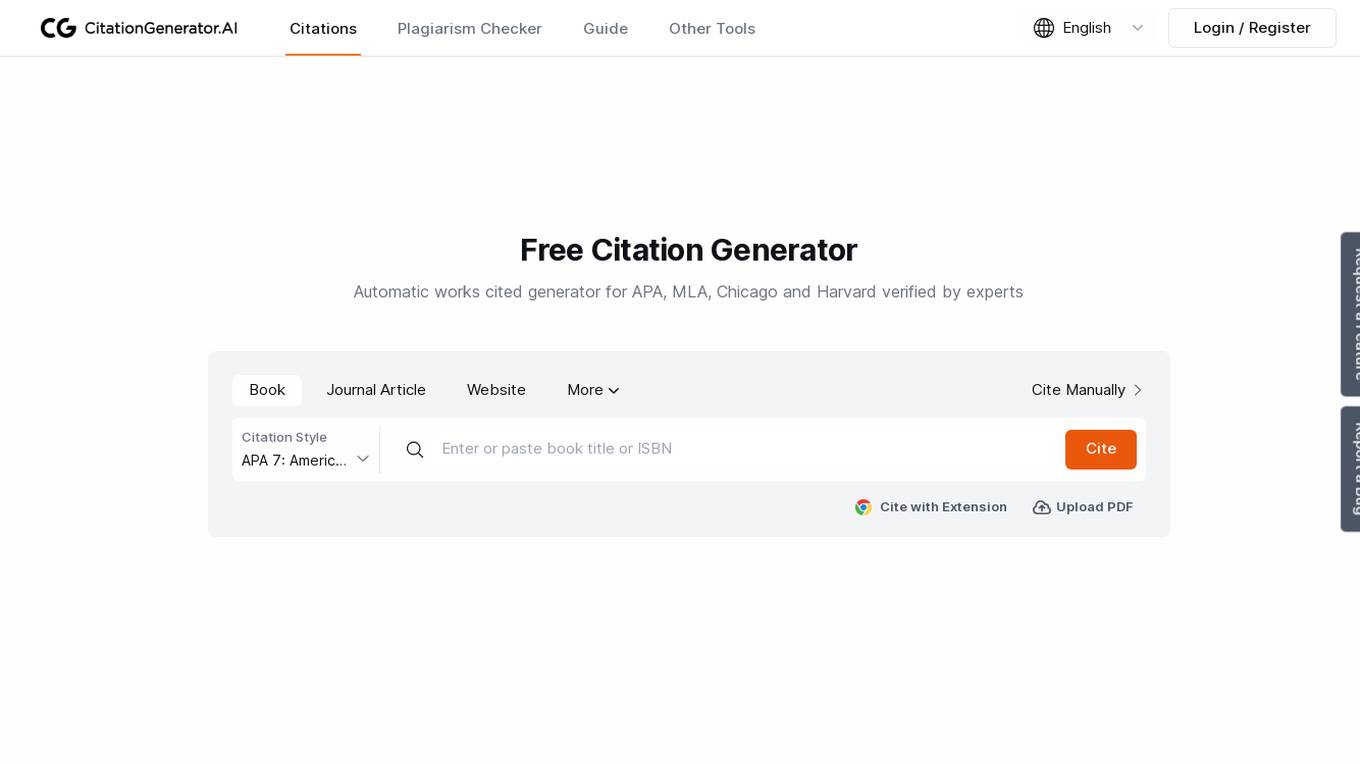
CitationGenerator.AI
CitationGenerator.AI is an AI-powered citation generator that helps users create accurate citations in APA, MLA, Chicago, and Harvard formats. The tool automatically extracts information from URLs, titles, ISBNs, or DOIs to generate precise citations. It offers a clean interface, supports multiple citation styles, and allows users to manage their research efficiently with features like import/export capabilities and custom fonts. CitationGenerator.AI prioritizes user privacy by encrypting data and offers free access without any hidden costs or ads. The tool is designed to enhance research integrity and ease by providing a user-friendly experience.

GC AI
GC AI is an AI tool designed for in-house legal teams, offering features such as legal prompting, real-time web research, and exact quote generation. It provides accurate outputs for legal use cases based on feedback from in-house lawyers and uses trustworthy legal sources for information. The tool is built by a 3x General Counsel and former Morrison & Foerster litigator, ensuring confidentiality, security, and compliance with California Bar AI guidance.
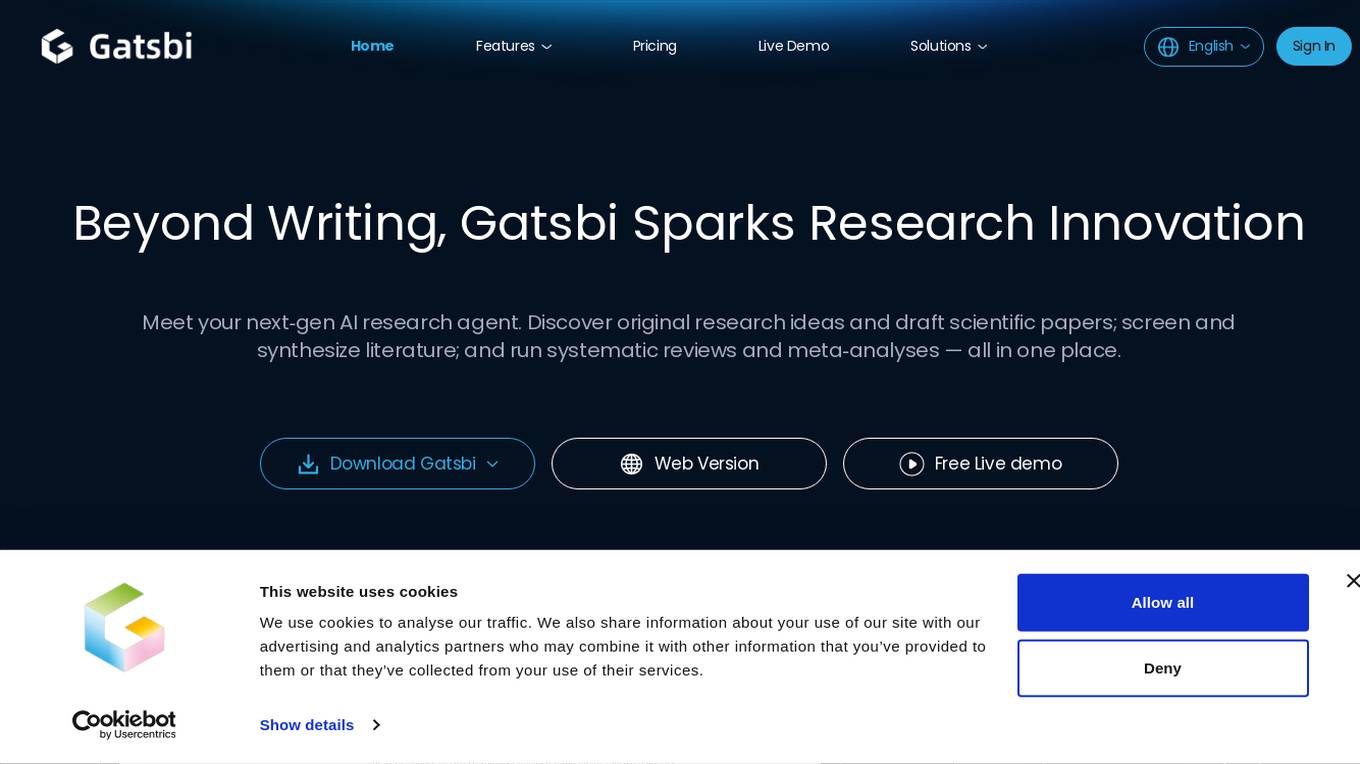
Gatsbi
Gatsbi is a research paper generator and AI research assistant that helps users discover original research ideas, draft scientific papers, write patent documents, and conduct systematic reviews and meta-analyses. It offers powerful features tailored for researchers and innovators, leveraging AI-driven ideation and innovation to streamline the research process. Gatsbi is designed to accelerate research workflows, save time, and inspire groundbreaking ideas across various fields.

Slideoo
Slideoo is an AI-powered tool for creating captivating presentations and professional documents in minutes. It offers real-time collaboration features, chatbot assistance, and AI-generated content to enhance productivity and streamline the document creation process. With over 10,000 customers from 10 countries, Slideoo revolutionizes the way presentations are made by transforming ideas from various sources into dynamic slides and documents effortlessly.

Skillaeo
Skillaeo is an AI Engine Optimization (AEO) platform that helps websites optimize their content to be favorably understood and cited by AI search engines like ChatGPT, Perplexity, Claude, and Gemini. It focuses on improving AI visibility by providing evidence-based fixes, competitor insights, and Skills Pack generation to enhance brand citations in AI-generated answers and recommendations. Skillaeo offers real-time AI audits, citation tracking, competitor analysis, and prioritized fixes to help websites improve their AEO score and visibility in AI search results.
4 - Open Source AI Tools
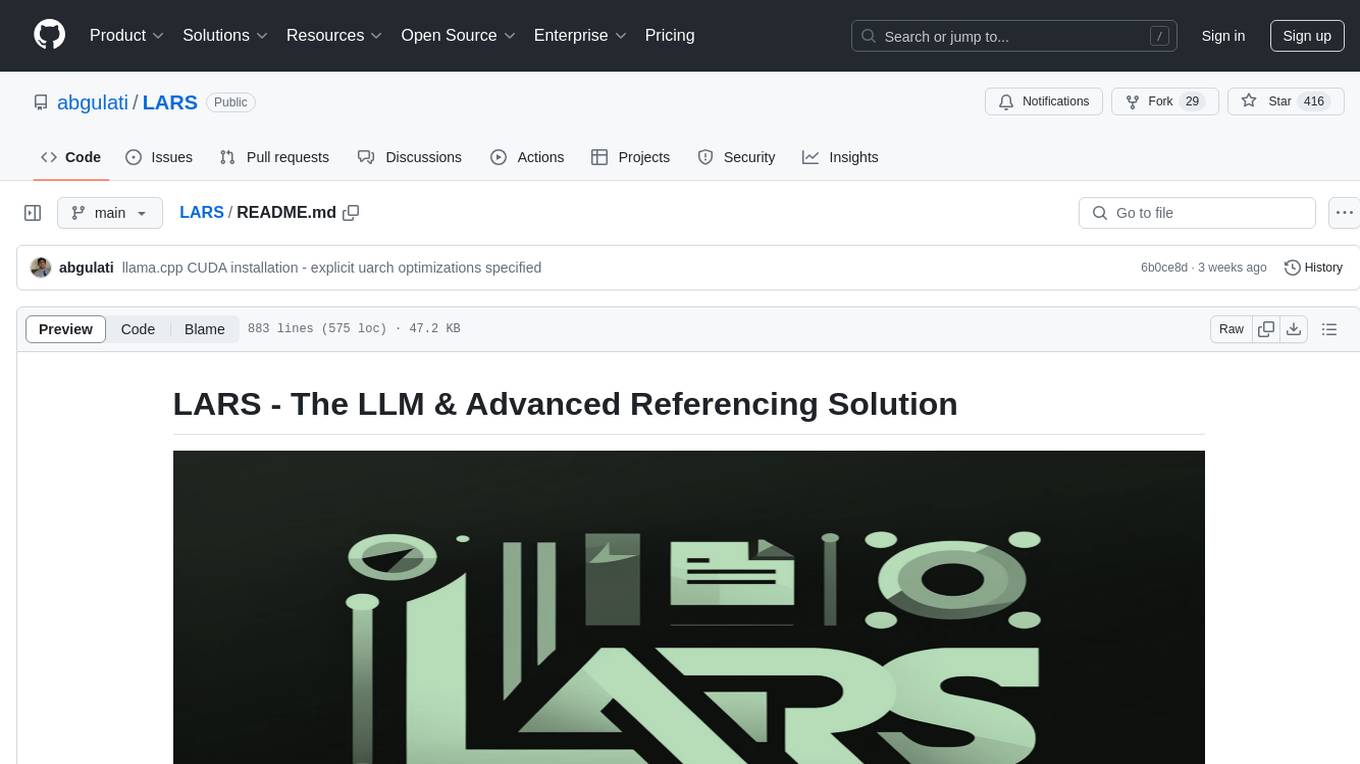
LARS
LARS is an application that enables users to run Large Language Models (LLMs) locally on their devices, upload their own documents, and engage in conversations where the LLM grounds its responses with the uploaded content. The application focuses on Retrieval Augmented Generation (RAG) to increase accuracy and reduce AI-generated inaccuracies. LARS provides advanced citations, supports various file formats, allows follow-up questions, provides full chat history, and offers customization options for LLM settings. Users can force enable or disable RAG, change system prompts, and tweak advanced LLM settings. The application also supports GPU-accelerated inferencing, multiple embedding models, and text extraction methods. LARS is open-source and aims to be the ultimate RAG-centric LLM application.
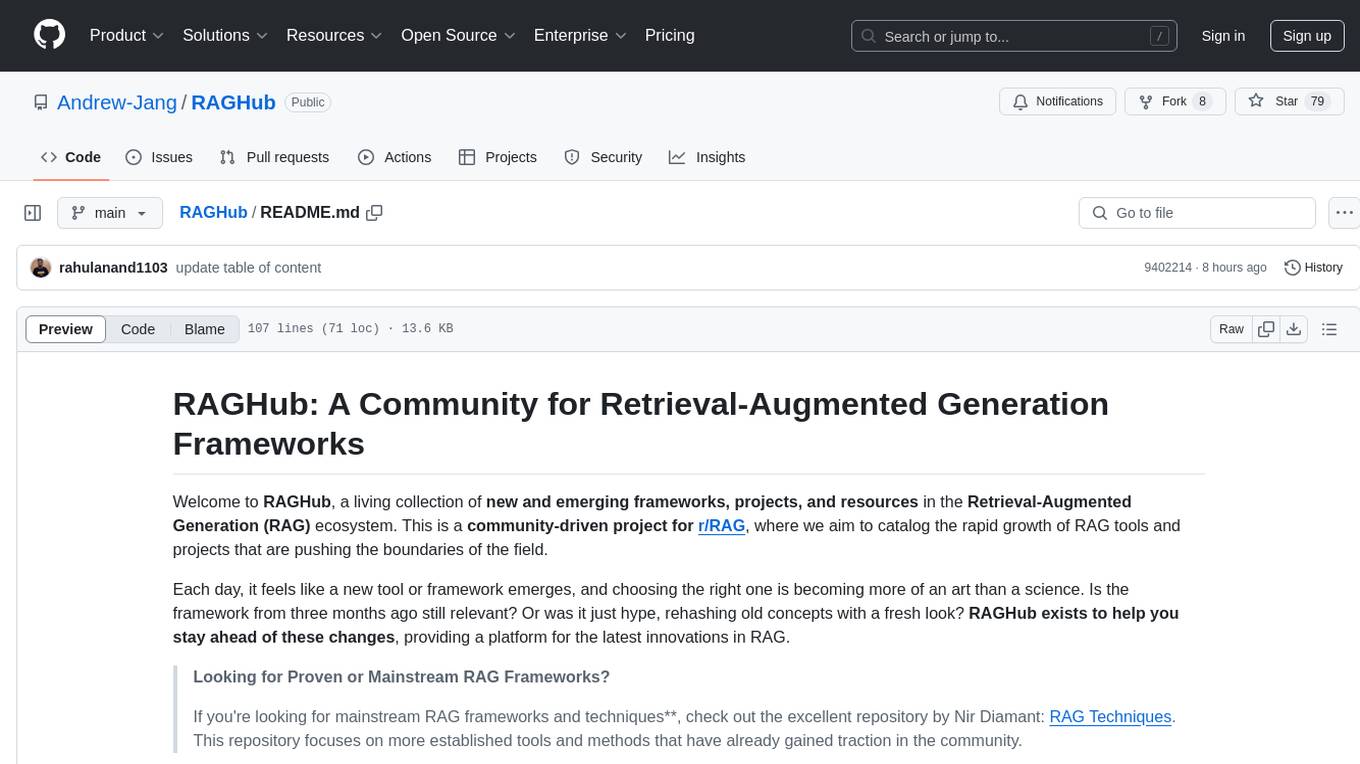
RAGHub
RAGHub is a community-driven project focused on cataloging new and emerging frameworks, projects, and resources in the Retrieval-Augmented Generation (RAG) ecosystem. It aims to help users stay ahead of changes in the field by providing a platform for the latest innovations in RAG. The repository includes information on RAG frameworks, evaluation frameworks, optimization frameworks, citation frameworks, engines, search reranker frameworks, projects, resources, and real-world use cases across industries and professions.
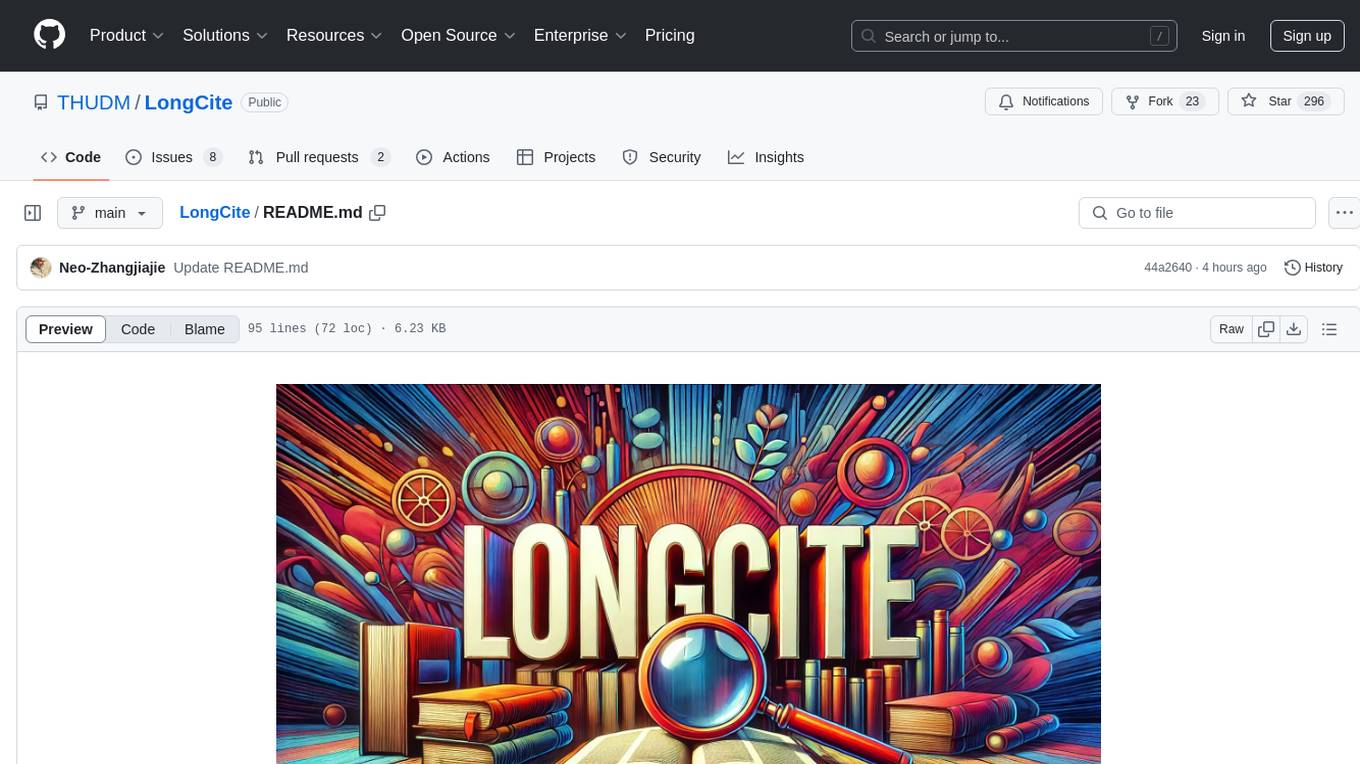
LongCite
LongCite is a tool that enables Large Language Models (LLMs) to generate fine-grained citations in long-context Question Answering (QA) scenarios. It provides models trained on GLM-4-9B and Meta-Llama-3.1-8B, supporting up to 128K context. Users can deploy LongCite chatbots, generate accurate responses, and obtain precise sentence-level citations. The tool includes components for model deployment, Coarse to Fine (CoF) pipeline for data construction, model training using LongCite-45k dataset, evaluation with LongBench-Cite benchmark, and citation generation.
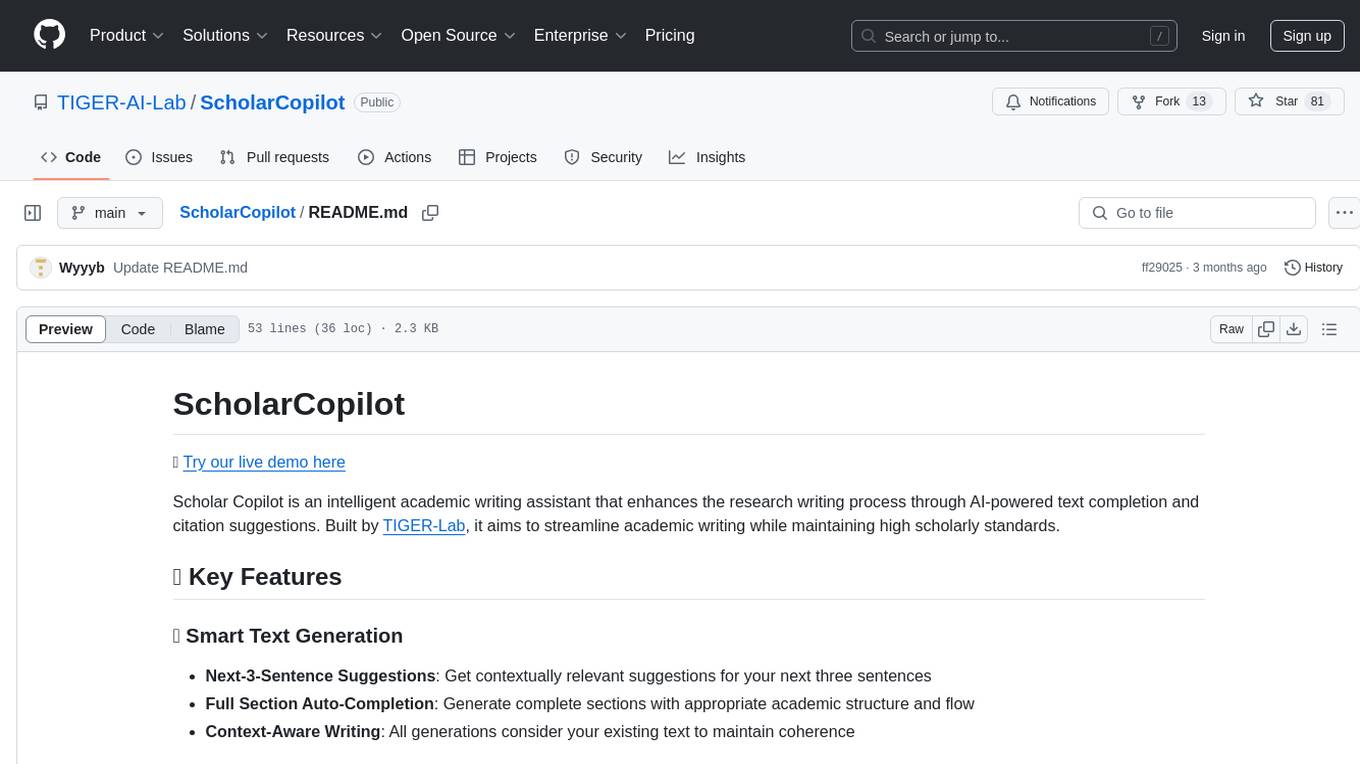
ScholarCopilot
Scholar Copilot is an intelligent academic writing assistant that enhances the research writing process through AI-powered text completion and citation suggestions. It aims to streamline academic writing while maintaining high scholarly standards. The tool provides features such as smart text generation with next-3-sentence suggestions, full section auto-completion, and context-aware writing. It also offers intelligent citation management with real-time citation suggestions, one-click citation insertion, and citation Bibtex generation. Scholar Copilot employs a unified model architecture that integrates retrieval and generation through a dynamic switching mechanism, ensuring coherent text generation with appropriate citation points.
20 - OpenAI Gpts
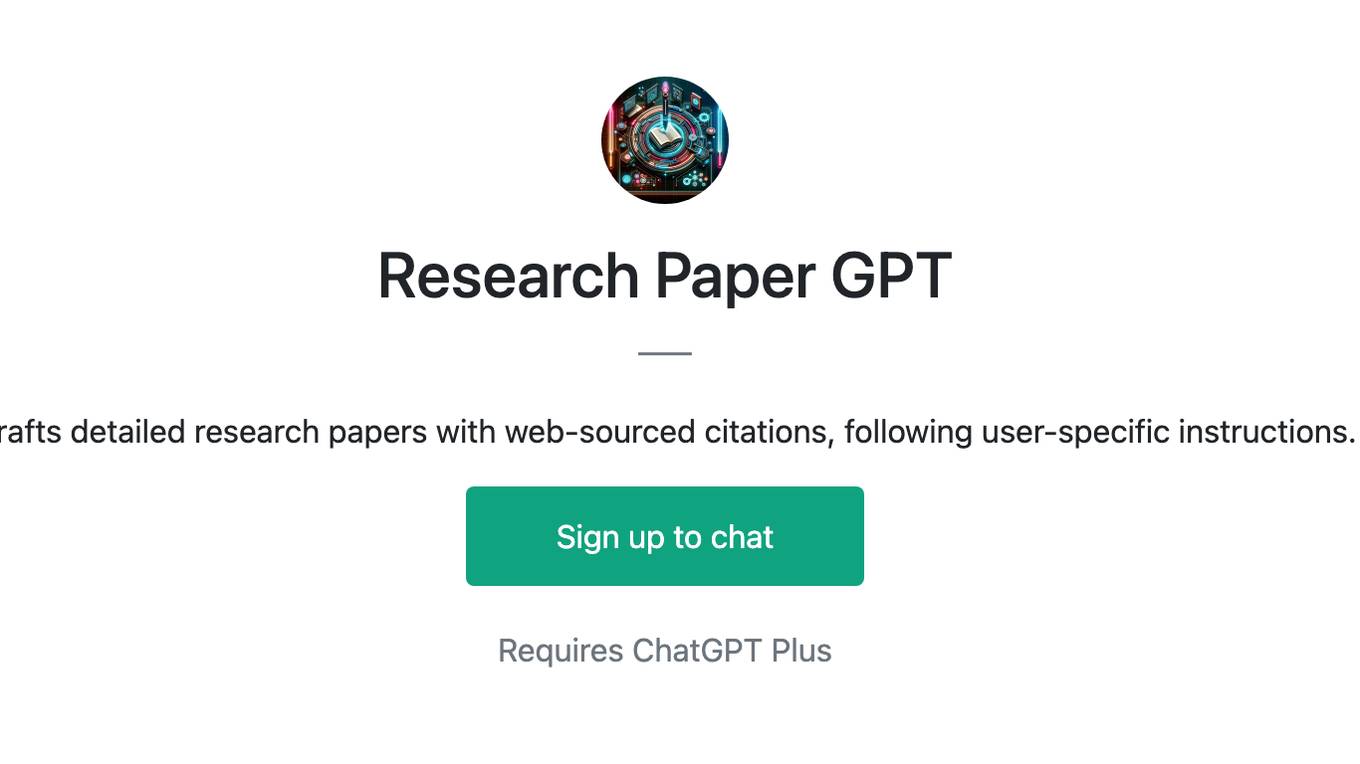
Research Paper GPT
Drafts detailed research papers with web-sourced citations, following user-specific instructions.
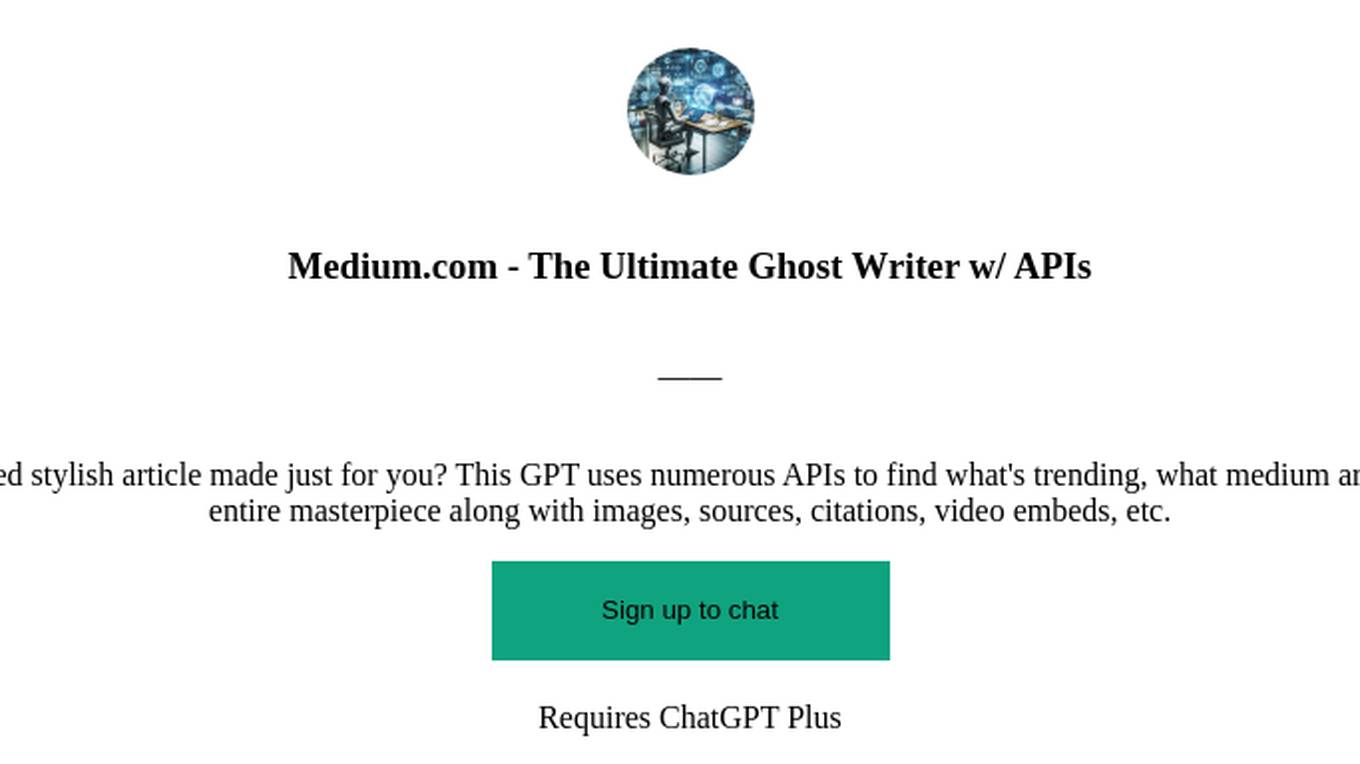
Medium.com - The Ultimate Ghost Writer w/ APIs
Looking for the perfect Medium.com humanized stylish article made just for you? This GPT uses numerous APIs to find what's trending, what medium articles are currently popular, uses data to write an entire masterpiece along with images, sources, citations, video embeds, etc.
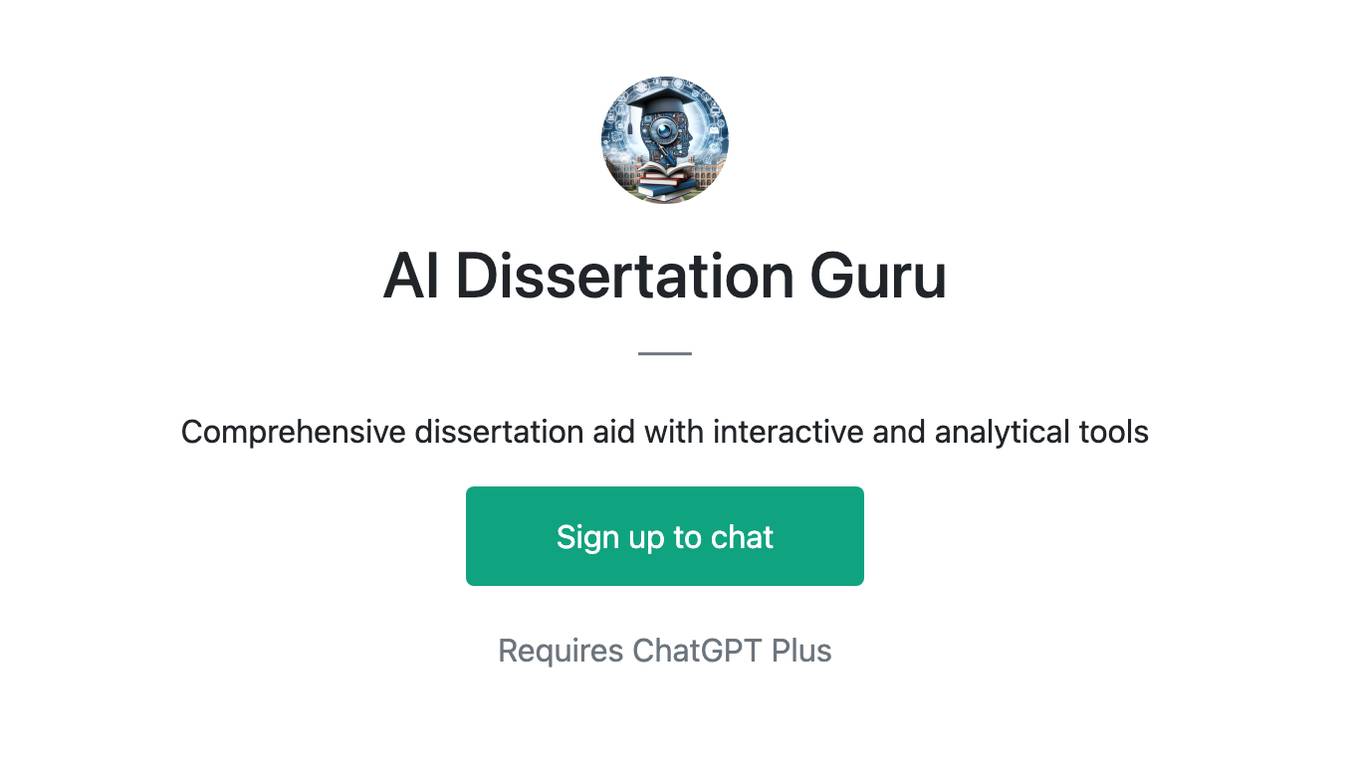
AI Dissertation Guru
Comprehensive dissertation aid with interactive and analytical tools
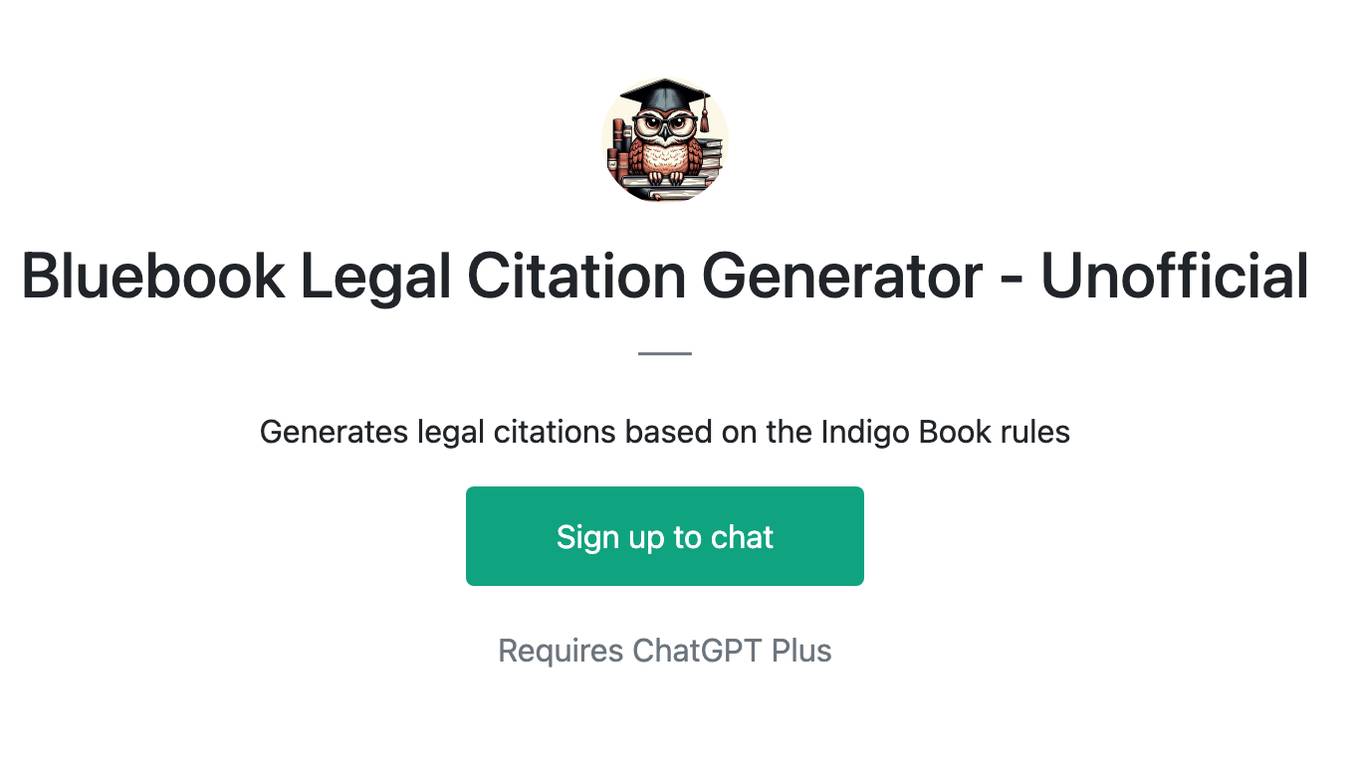
Bluebook Legal Citation Generator - Unofficial
Generates legal citations based on the Indigo Book rules

Crooked Recipes
The Ultimate Recipe Generator: Personalized creations for the discerning chef!
